|
March 23, 2019 - No. 10
Matters of
Concern to the
Polity
2019 Federal
Budget a Bag of
Tricks

Alberta Election April 16
• Working
Albertans Do Not Harbour a Morbid
Preoccupation with
Defeat
• What Is the
Problem in Alberta?
• Confronting
the Boom and Bust Alberta Economy
and Disinformation of the
Ruling Elite
• The Carbon
Tax
For
Your
Information
• Distribution
of
Seats
and
Registered
Political
Parties
at Dissolution of Legislature
Disinformation that Huawei 5G Network
Is a Threat
to National Security
• The Advent
of New Forms of Mass Communications of
the Social Productive
Forces
- Louis Lang -
Hands Off Venezuela!
• CARICOM
Rejects Canada's Proposal to Undermine Petrocaribe
- Misión Verdad -
International Court of Justice Rules
British Occupation
of the Chagos Islands Illegal
• Refusal to
Uphold International Rule of Law Is a
Serious Matter of
Concern
• Victory
for
the Chagos Islanders
- John Pilger -
• UK Rejects
International Court of Justice Opinion
on the Chagos
Islands
- Craig Murray -
March 21 -- International Day Against
Racial Discrimination
• To Defend
Minority Rights Is to Defend the Rights of All
Youth Worldwide Demand a Bright Future
• Global
Student Climate Strike -- Photo Review
Matters of Concern to the Polity

The Trudeau government tabled its budget entitled:
"Investing in the Middle Class to Grow Canada's Economy" on March
19. The budget is a bag of tricks. It does not identify what
problems in the economy it purports to solve and how those
problems pose themselves. Instead, it begins with the assertion,
"A strong economy starts with a strong middle class." This is a
chicken and egg statement. Which comes first, the strong economy
or strong middle class? Or does it really matter because the
nonsense in the budget cannot be taken seriously? The budget
rhetoric is meant to cover up the pay-the-rich essence of
government policy. It aims to disinform and divert the people
from discussing the economy as it presents itself so as to change
its direction.
At 500 pages it is unlikely that many MPs will read the
budget bag of tricks before it is voted on which is likely one if
its aims. A trick slipped into the previous megabudget bill was a
remediation agreement (also known as a deferred prosecution
agreement), the mechanism at the base of the SNC-Lavalin scandal
that would allow the company to escape criminal charges for its
corruption and continue bidding on government projects. This
budget is perceived to be a cynical exercise in pork barrel
spending to favour the re-election of the Liberals in 2019.
The Trudeau government's obsession with the middle
class is
the same theme it used in the 2015 general election. The question
arose at that time what does the Trudeau government mean by a
middle class and why it is so obsessed with it? To designate a
middle class means the government also has in mind those in the
upper class and those in the lower class.
The neo-liberal concept of a middle class in the 21st
century
is used to obscure the actual social class composition and how
the situation of the two main social classes presents itself as
well as the plight of the middle class. A social class is defined
by how it acquires its living. The working class sells its
capacity to work to those who own and control the means of
production, both private and public, collectively known as the
financial oligarchy. Those two main social classes see the
economy and its problems differently because of how they acquire
their living, their social class position. The two social classes
defend their claims on the economy, generating class
struggle.
There is indeed a "middle class" in capitalist society,
although not defined the way the Trudeau government does when it
claims this class is comprised of people whose taxable income is
within a certain range. The livelihood of the middle class
depends on the perpetuation of the capitalist system but its
survival is threatened by the overwhelming domination of the
economy and the political power by the tiny rich minority. There
is inevitably discontent in its ranks as it gets pushed further
and further into the working class as government intervention in
the economy further strengthens the grip of the financial
oligarchy. Any measures in the budget that might favour this
"middle class" are aimed at buying its allegiance to the status
quo so that the financial oligarchy can get away with asserting
its dictate over the economy and society. Responses to the budget
of those who claim to represent this section of the population
show allegiance to the system while grumbling that the crumbs are
not enough.
 The working class wants a
government which supports them in
its defence of what belongs to them by right as the actual
producers of all value, and which launches the economy in a new
direction that creates stability and security for all. The working class wants a
government which supports them in
its defence of what belongs to them by right as the actual
producers of all value, and which launches the economy in a new
direction that creates stability and security for all.
Those who buy the capacity to work of the working
class, the
financial oligarchy, want a government which supports them in
their defence of their privileged claim on what the working class
produces and to perpetuate the current direction of the economy,
which favours their class interests.
The Trudeau government's concept of a middle class
obfuscates
this social class struggle of claims and direction. The budget
says, "Investing in the middle class means investing in people --
with more help for those who need it, and less for those who
don't." From this we assume more help for those "in the middle
class" who need it and "less for those who don't." It appears
that what the Trudeau government considers the lower class does
not need or does not deserve help at all. A growing number of
Canadians have fallen out of the working class into extreme
poverty for one reason or another from which any recovery is
difficult indeed without massive support from society and social
programs. Despite the claims made about it, the budget does not
alleviate the problem of Canadians living in poverty or give any
momentum towards humanizing the social and natural environment.
In fact, the tax credits which it says benefit the "middle class"
are not designed to alleviate the problems the people face and,
besides their propaganda value, this is not their intention
either.
The budget's proposed measures eventually funnel money
to the
rich, those who buy the capacity to work of the working class and
the value workers bring to the work they do. The proposals in the
budget can be dissected to show that in one way or another they
assist those who own and control the economy.
The budget purports to deal with four areas, namely,
"Good
Jobs," "Housing," "Seniors" and "Pharmacare." What the government
calls "Good Jobs" refers to its new "Canada Training Benefit,"
saying that "the evolving nature of work means that people may
change jobs many times over the course of their working lives, or
may require new skills to keep their jobs in a changing economy.
For working Canadians, this presents a new challenge: how to get
the training they need to keep their existing jobs, or prepare
for a new one." The effect of this measure will be to increase
the value of the capacity to work of the working class without
the eventual buyers of that capacity paying for or realizing the
value that has gone into it.
Under the heading of "Housing," the government presents
its
policies as increasing the purchasing power of the working class
such as the "First-Time Home Buyer Incentive" but the essence is
that every measure perpetuates and strengthens the control and
class privilege of the ruling financial oligarchy and funnels the
collective value from the economy towards the rich.
The economy today is working people collectively using
means
of production to produce useful goods and services so that the
people can live a modern lifestyle and society can progress. An
economy has objective conditions found in the level of the
productive forces and the relations people enter into to
participate in the economy called the relations of
production.
Canada's productive forces have advanced tremendously
since
the nineteenth century but the relations of production have not
changed. This contradiction can be seen in the unresolved
problems in the economy and its recurring economic crises, and
most strikingly in the dysfunction in the relations of
production. Life itself confirms the necessity for renewal of the
relations of production to bring them into conformity with the
socialized productive forces.
The budget has both the purpose of covering up the real
intent of the measures to pay the rich and to divert working
people from looking at the economy with their own social
consciousness and economic science so as to open a path
forward.

Alberta Election April 16
The Alberta provincial election, announced by
Premier
Rachel Notley on March 19, is to be held April 16 after a 28-day
election campaign.
Four years ago, Albertans delivered a stunning
repudiation of
the neo-liberal anti-social agenda being waged at the time by the
Progressive Conservative Party, bringing down a 44-year dynasty
in Alberta.
 That
feeling of optimism has vanished.
Despite its efforts to bring about some reforms for which the working
class and people fought, four years of NDP government have
deepened the crisis of credibility in which the system called a
representative democracy is mired. Bringing political parties
over which people exercise no control to form governments does
not give rise to people's empowerment. Any perception that might
have lingered that the cartel party system has anything to do
with permitting the people to set government policies has
vanished as a result of four years in which Big Oil continues to
dictate what can and cannot be done in Alberta. That
feeling of optimism has vanished.
Despite its efforts to bring about some reforms for which the working
class and people fought, four years of NDP government have
deepened the crisis of credibility in which the system called a
representative democracy is mired. Bringing political parties
over which people exercise no control to form governments does
not give rise to people's empowerment. Any perception that might
have lingered that the cartel party system has anything to do
with permitting the people to set government policies has
vanished as a result of four years in which Big Oil continues to
dictate what can and cannot be done in Alberta.
The United Conservative Party (UCP) led by Jason
Kenney,
which
is hoping to replace the NDP led by Rachel Notley, is the product
of a hostile takeover of the Wildrose and Progressive
Conservative parties and is united in name only. Even as the
election gets underway, Kenney himself is mired in corruption
scandals.
All of this is used by the energy and other
oligopolies, such as
the big banks, to overwhelm people with the idea that the choice
is between pipelines and the environment, "compassionate" versus
severe austerity. There is no alternative to a growing public
debt and deficit, the continued wrecking of health care,
education and seniors' programs, pipelines in all directions,
economic crisis, pay-the-rich schemes and setting people at each
other's throats.
Meanwhile, the working people have their own concerns
and
agenda and feel stronger when they stick to devising the strategy
and tactics which bring about change in their own sectors of the
economy, communities, places of work and defence organizations to
make sure their interests are advanced. The forces which defeated
the anti-worker, anti-people agenda in 2015 did so by fighting
for a pro-social agenda and defending rights. Workers in many
sectors of the economy are bringing forward their claims on
society and for a new direction for the economy to bring it
about.
Given the significance of the Alberta oil industry to
the
people of all of Canada, the results of the Alberta election are
a matter of concern for all Canadians. Trudeau gave away $4.5
billion to purchase the Trans Mountain pipeline in the name of
Canadians. Let everyone speak in their own name in this election
about the solutions they want to see implemented in Alberta.
Say No to
Paying the Rich! Increase Funding for Social
Programs! Put the claims of the working people in first place,
not those of the rich.

Think about it. Alberta has had this resource dependent
problem for decades with no viable alternative coming from the
ruling elite. Why is that?
 You have the likes of
Justin Trudeau and others who declare Yes to charging people carbon
taxes, No to oil tankers off the north coast but Yes to pipelines, Yes
to more oil tankers off the south coast, and Yes to oil sands projects,
while others declare Yes to all the above but No to carbon taxes, or
simply No to all the above. You have the likes of
Justin Trudeau and others who declare Yes to charging people carbon
taxes, No to oil tankers off the north coast but Yes to pipelines, Yes
to more oil tankers off the south coast, and Yes to oil sands projects,
while others declare Yes to all the above but No to carbon taxes, or
simply No to all the above.
Generally
speaking, the human capacity to solve problems is presented as very
restricted. There is a notion that humans have brawn but no brain
or that they are good at one thing but incapable of doing other
things. For example, humans have developed nuclear fuel as a
source of energy but do not know what to do with the nuclear
waste. The motive of production though to
develop nuclear fuel is found in the war economy. This motive
evaporates when it comes to dealing with the radioactive waste.
Development of the oil industry was also closely linked with the
war economy, with Alberta's economy going hand in glove with the U.S.
war
machine. It likewise has no answer for the problems it causes in
environmental degradation from abandoned oil rigs and wells and
the large issue of climate change. Solving those problems does
not form part of its motive.
The problem lies with the social class in control and
its
motive of production not human capacity. The motive to become
rich and wage imperialist war is too narrow and destructive to
deal with the complexities of the modern economy. Take carbon
fuels as an example. The motive has to be there to make the
transition from carbon energy in such a way that it becomes a
serious alternative not only towards reducing greenhouse gas
emissions but away from the war economy, car culture and the
control of the global oligarchs over the people's lives, economy
and politics.
Yes and No Agenda
In the elections the
people are presented with a Yes / No agenda: Yes and No to
pipelines, Yes and No to oil to tidewater, Yes and No to oil
tankers, Yes and No to carbon fuel, Yes and No to carbon taxes, Yes and
No to shipping oil by rail; Alberta loves oil, others
hate oil; consultation with Indigenous nations but no veto and no
full participation in planning and developing their territories
using the resources that are there or infrastructure that passes
through.
In all this back and forth of Yes and No, collective
discussion of an alternative direction and agenda for an
all-sided pro-social economy independent of the demands of the
U.S. imperialists, their war machine and the global oil barons is
quashed. The claims of the people on society are disappeared
and, save for their efforts to speak out, never see the light of
day because those in a position of authority and in the mass
media use all their power, including the police power, to block the
development of an alternative and the collective discussion
necessary to get us there.
In the present situation, elections are used to make
sure
everything connected with the economy is turned into pragmatism
to favour those in control. This means the ruling elite constrain
the discussion, agenda or possible direction within the bounds of
themselves and their empires becoming richer and they extend
their dominance through war. This means the only direction
possible or debatable is one that holds out the possibility of
making the oligarchs oodles of money and extending their control
over life. Within this constraint, pragmatism rules. The
narrowest self-serving end justifies the means. Principles, if
they are to exist at all, have to serve the motive of becoming
rich and tightening the control of the oligarchs, which is hardly
what one could call a principle.
The only things possible or expedient are constrained
within
whatever favours the financial oligarchy. This precludes any
discussion of the principles of a modern economy that stands in
opposition to the imperialist system of states and the necessity
for people to exercise control over their lives, an economy that
has as its guiding principle to guarantee the security and
well-being of the people and the humanization of the social and
natural environment.
Oil sands development and a pipeline to Vancouver are
possible and desirable because the U.S. imperialists want oil for
their war economy and active military, and Alberta has heavy oil.
The oil is there, it exists, therefore it must be developed to
make oligarchs rich and extend their control, empires and war
aims. No discussion on the aim society must pursue and the means
to realize that aim is permitted. Discussion on a motive that may
allow the development of the oil sands in a planned humanized way
is considered fringe.
 Those in control make a big
show of ending dependence on the U.S. market and the price the
oligarchs dictate. But their actions shout -- who cares about
being beholden to the U.S. war economy, being beholden to the global
markets, and the economic crises that recur with regularity? Those in
control shout we are all for more pay-the-rich schemes in the name of
carbon reduction so long as it puts money in our pockets, but when it
comes to doubling oil sands production, just go for it because in the
moment certain oligarchs will become even richer, their line of march
to dominate the world through war and plunder be damned; Alberta's
prosperity depends on them. Those in control make a big
show of ending dependence on the U.S. market and the price the
oligarchs dictate. But their actions shout -- who cares about
being beholden to the U.S. war economy, being beholden to the global
markets, and the economic crises that recur with regularity? Those in
control shout we are all for more pay-the-rich schemes in the name of
carbon reduction so long as it puts money in our pockets, but when it
comes to doubling oil sands production, just go for it because in the
moment certain oligarchs will become even richer, their line of march
to dominate the world through war and plunder be damned; Alberta's
prosperity depends on them.
Objectively speaking, in this election Albertans are
perplexed by the "choices" -- a non-alternative to a non-alternative --
and they are corralled into voting for purposes of saying this or that
party has their consent to govern.
But all of this diverts from the recognition that the
alternative to the current state of affairs has already come into
being in the form of those who speak out in their own name and
elaborate their claims on society, as we see taking place in
myriad ways every day. This affirmation of the human
factor/social consciousness dispels all feelings of hopelessness,
helplessness and humiliation inherent in the ruling class's
morbid preoccupation with defeat and death based on the nonsense
that if the rich do not get paid, Alberta will collapse; if
carbon taxes prevail, Albertans will be doomed and other
such self-serving propaganda designed to disinform the
development of the movement for people's empowerment.
A nation-building project worthy of the name inscribes
on its
banner the people's demand for a pro-social economy which stops
paying the rich and increases investments in social programs.
Securing the well-being of the people by humanizing the social
and natural environment is the way forward if the problems
plaguing Alberta are to be resolved.

A truck convoy set out from Red Deer, Alberta on
February
14, calling for "support for the oil industry." Media reports
suggest about 60 or 70 trucks from big rigs to campers arrived in
Ottawa on February 19. Organizers of the "United We Roll" convoy
said their message was to axe the federal carbon tax, build more
pipelines, and withdraw Bills C-69 and C-48.[1]
The convoy was originally announced in January but many
of those promoting the trek and raising funds withdrew citing
"complications" and not wishing to be associated with certain voices
playing politics who gained some prominence in the media. The “Canada
Action” group whose organizers are prominent members of the
Conservative
Party cancelled its convoy, leaving the “United We Roll Group” to
proceed with the convoy.
Media reporting on the convoy has centred on the
presence of
opponents of the UN Global Migration Pact, the unacceptable
behaviour of certain individuals towards the Indigenous land
protectors, and the fact that a platform was given to an avowed
racist. The media attention on what may or may not have been
agents provocateurs meant that no discussion took place about the
serious concerns workers have consistently raised during the many
actions across Alberta preceding the February cross-Canada
convoy.
 Proper reporting and inquiry
would necessarily take up the
question of who sets the agenda for the Alberta economy that led
to the present crisis and how those powerful global energy
oligarchs benefit from the agenda they set. Needless to say, the
oligarchs do not want any investigation or discussion that would
hold them to account for the present difficulties. Proper reporting and inquiry
would necessarily take up the
question of who sets the agenda for the Alberta economy that led
to the present crisis and how those powerful global energy
oligarchs benefit from the agenda they set. Needless to say, the
oligarchs do not want any investigation or discussion that would
hold them to account for the present difficulties.
The energy oligarchs operating in Canada are calling
for
Canada to further embroil itself in the vicious competition, war
economy and striving for world domination of "Fortress North
America," a course which is very harmful to the people and Mother
Earth. The drive for global hegemony takes the form of
nation-wrecking, wars of aggression, and all-out destruction of
what they cannot control. Collateral damage in this striving for
domination includes the Alberta economy.
The problem facing the
ruling circles is that the Alberta working class is a militant
grounded contingent of the Canadian working class. It has always
stood its ground. This is why the oligarchs and their
representatives and media go all out to disinform the working
peoples' instinctive opposition to the damage caused by "Big
Oil," privatized health care, seniors' care, education and the
pay-the-rich schemes of subsequent governments no matter their
political stripe. The working people respond by taking further
measures which collectively articulate a coherent way forward
which favours them. A new direction for the economy which
humanizes the social and natural environment is a matter for the
working class to sort out. The motive of the rich to wantonly
plunder the resources and exploit labour and expropriate the
fruits of labour has long since shown how destructive it is. It
has long since been rejected. It must not be permitted to
dominate the electoral agenda.
Rallies in Alberta

Truck convoy travels through Estevan, Saskatchewan, December 22, 2018.
Rallies and truck
convoys took place in at least 13 cities and towns across Alberta
as well as in several cities and towns in Saskatchewan and
Manitoba in December and January, with thousands of people
participating. Workers and small business people and others in
their communities attended the rallies and expressed great
concern about their future. They spoke about the difficulties
they have faced since oil prices crashed in 2014 and how boom
once again turned to bust. Most of the communities where the
protests occurred are heavily dependent on the conventional oil
and gas industry not the giant oil sands' projects. People spoke
about the loss of their homes, vehicles and small
businesses.
The unfolding events of the protests that ended in
Ottawa
reveal how the ruling circles stifle and suppress thought,
inquiry and discussion. The cartel parties, monopoly media and
direct disinformation from the energy cartels defined the
problem, solution and agenda that all should follow or oppose.
This blocked any coherent public opinion from developing through
conscious participation in acts of finding out and collective
discussion.
The Oligarchs Speak
The ruling elite proclaimed the oil industry in crisis
because:
- Alberta has to sell its oil at heavy discounts to one
market, the United States; and
- the regulatory regimes, compounded by Trudeau's Bill
C-69,
are "killing investment" and must be cratered.
To build pipelines is therefore the solution, they
declare. This supposedly will open up markets in Asia even though the
twinning of the Trans Mountain bitumen pipeline to Vancouver, despite
overwhelming evidence that it is mainly meant to supply refineries in
Washington and California.
The ruling circles who set the agenda do so in a manner
to
generate maximum animosity and discord as to whether people are
for or against an agenda they did not participate in setting.
This stifles investigation and discussion into the objective
problems and the need for a new direction for the economy.
The disinformation campaign obscures the situation
including
the fact that the energy oligarchs have no intention at this time
of revisiting the conventional oil and gas industry on which many
small towns and cities rely. The global market is awash in U.S.
fracked light crude. It does not and has no intention to
explain how a lack of pipeline capacity caused the crash of
the global market price of oil in 2014.
The concerns being raised in towns and cities across
Alberta
and in other parts of western Canada through these rallies and
convoys are serious. They should not be dismissed with
obfuscation and denunciations of those participating as racist,
anti-environment and so on. People want real solutions to
real problems, and are showing their concern through their
actions.
The rich oligarchs and the cartel parties doing their
bidding
are a source of division amongst the people. They are desperate
to block people from conscious participation in acts of finding
out and drawing warranted conclusions. The people's lack of control and
political empowerment leaves them without their democratic right
to decide or even know what is the root cause of the problems
they face.
Issues are reduced to what is most expedient for the
rich
within the situation and can cause the most divisions
amongst the people. The rights and consent of the Indigenous
peoples are reduced to perfunctory consultation; and the rights of
workers to wages and working conditions acceptable to them is
dismissed as a cost to production and deterrent to investment.
Likewise, the protection of the environment and the necessity for
action to address the problem of climate change are positioned in
opposition to development for which indirect incentives such as a
carbon tax and direct pay-the-rich schemes to promote green
entrepreneurs are said to be the answer rather than dealing with
the problem as it presents itself.
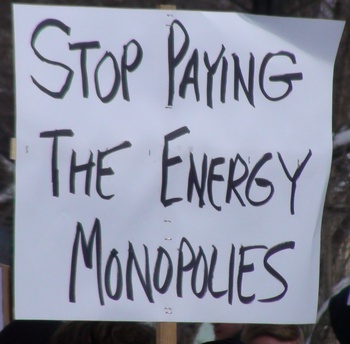 Nation-building itself,
which in the modern era must be
founded on an independent diverse all-sided economy of social
programs, public services, manufacturing and resource extraction
is sacrificed on the altar of imperialist globalization to serve
the narrow private interests of the oligarchs. Nation-building itself,
which in the modern era must be
founded on an independent diverse all-sided economy of social
programs, public services, manufacturing and resource extraction
is sacrificed on the altar of imperialist globalization to serve
the narrow private interests of the oligarchs.
The energy industry in Alberta is under the control of
the
global cartels. This fact alone must be addressed as a priority,
as decisions are made that serve the global interests of the rich
and not Albertans. This leaves working people and their
communities vulnerable to the intense competition amongst the
oligarchs and their striving for hegemony. A new direction is
needed for the economy where the control moves to Alberta working
people, and the motive of production becomes the determination to
meet the needs of the people, to humanize the social and natural
environment and to trade for mutual benefit and development with
all those around the world who are willing to do so.
The challenge facing the polity is to break through the
disinformation with a collective voice that refuses to be cowed
and is determined to take up the politics of social
responsibility and speak in its own name with its own agenda.
Note
1. Bill C-69 amends
the process for approval of pipelines and other energy projects
and infrastructure. Bill C-48 enshrines in legislation the
existing restrictions on tankers on the BC West Coast from the
northern tip of Vancouver Island to Alaska.

An additional tax placed on carbon commodities does
nothing to sort out the issue of how to stop damaging the
environment stemming from modern production methods, our current
way of life and most importantly what is revealed by the ensemble
of social relations between human and humans and humans and
nature which is that without people's empowerment, the road to
progress is blocked. The carbon tax does not address the actual
production process, who controls production, the aim of those in
control, and the relations of production, especially those
between the working class and those to whom workers sell their
capacity to work and control the means of production and
distribution.
P roduction under imperialism
today, at a time a
neo-liberal
agenda prevails, is characterized by anarchy and violence.
Opportunism is the name of the game and not only can nothing be
consciously planned but, worse still, nothing can be brought
under control on the basis of the imperialists' striving for
hegemony on every front. In contrast, the central feature of a
modern pro-social economy would be to meet the needs of people
and protect the environment as a matter of course, something
which can be achieved on the basis of scientific planning and a
modern pro-social outlook that upholds social responsibility as a
matter of course. Nobody can argue that this is what we have
now. roduction under imperialism
today, at a time a
neo-liberal
agenda prevails, is characterized by anarchy and violence.
Opportunism is the name of the game and not only can nothing be
consciously planned but, worse still, nothing can be brought
under control on the basis of the imperialists' striving for
hegemony on every front. In contrast, the central feature of a
modern pro-social economy would be to meet the needs of people
and protect the environment as a matter of course, something
which can be achieved on the basis of scientific planning and a
modern pro-social outlook that upholds social responsibility as a
matter of course. Nobody can argue that this is what we have
now.
Without economic planning
imbued with a modern outlook of
social responsibility, the environment cannot be saved nor the
well-being of the people met. The cartel parties even boast that
the economy is best left to the market where an invisible hand
manages supply and demand and other issues. What they are saying
in practice is that the people should leave the economy up to the
most powerful private interests and their striving for control so
as to make obscene windfall profits. What best serves their
private interests for maximum profit further fuels the raging
competition and wars with each other and the people to build
their empires.
How can people humanize the social and natural
environment
when those in control are completely devoid of social
responsibility because it conflicts with their private interests
to squeeze maximum profit from the natural resources and their
workers?
The environment in itself is not any kind of
consideration to
the oligarchs in control; life has proved that point decisively,
especially in the development of the war economy and the constant
waging of wars. The environment only becomes a consideration if
the oligarchs can make oodles of money from it and become green
billionaires like former U.S. vice-president Al Gore. Their
outlook and aim are not to protect the environment and humanity
from destruction but to become rich and build their empires in
competition with other oligarchs.
Being forced to choose between a carbon tax or not is
another
one of those false choices the people are given, such as rival
candidates of the cartel parties in elections where the people
have to give up their own thinking, interests, agenda and voice.
The Marxist-Leninist Party calls on the working people to reject
that and instead initiate discussion which provides society with
a different aim and renews the political process so that the
people's claims on society are heeded. The material conditions
have long since been brought into being by the working people to
enable the economy to provide for their needs. The material
conditions for the alternative in the form of an educated working
class and modern processes of production and modern science and
technology exist. The alternative is already in existence. Make
the demand for social responsibility towards the people's
well-being and to humanize the social and natural environment as
the guide to action in Alberta ring out loud and clear. Do not
take no for an answer. Do not permit those who do not uphold
social responsibility to usurp power through electoral fraud!

For Your
Information
At the time the election
was
called, the governing New Democrats held 52 of Alberta's 87 ridings and
the
official opposition, the United Conservative Party (UCP) held 25. The
Alberta Party held four seats, the Alberta Liberals one seat, the
Freedom Conservative Party one seat, and there were three
Independents. One seat was vacant.
At the time of dissolution of the legislature, only 54
of the
86 MLAs represented the political party for which they ran in the
2015 election. The Progressive Conservative Party and Wildrose
Party were destroyed and replaced by the UCP in 2017, led by Jason
Kenney. Those who ended up sitting as Independents either left or were
removed from the parties they ran for. Three PCs did not join the UCP,
with two joining the Alberta Party and one the NDP. One MLA was kicked
out of the UCP and formed his own party.
Alberta has a population of 4,334,025, an increase of
more
than 200,000 since the 2015 election. There are roughly 2,615,000
people in Alberta who are registered to vote in a provincial
election, according to Elections Alberta.
Registered Political Parties
There are
13 registered political parties in Alberta. However, the
Progressive Conservative Association of Alberta (PC) and the
Wildrose Party, technically still on the books, in reality no
longer exist.
The 11 extant parties are:
Alberta Advantage Party (AAP)
Alberta Independence Party
(AIP)
Alberta Liberal Party (LIB)
Alberta New Democratic
Party (NDP)
Alberta Party (AP)
Communist Party-Alberta
(CP-A)
Freedom Conservative Party of Alberta (FCPA)
Green
Party of Alberta (GPA)
Pro-Life Alberta Political Association
(PAPA)
Reform Party of Alberta (RPA)
United Conservative
Party (UCP)

Disinformation that Huawei 5G Network Is
a
Threat to National Security
- Louis Lang -
The U.S. is making the penetration of Huawei's 5G
network
in the North American market an issue of the "danger of Chinese
espionage which is a security threat for the whole world." It is
part of the fierce competition in the telecommunications field
amongst the largest telecommunications companies in which the
U.S. seeks to maintain its dominance through its links with the
oligopolies that are already directly linked to the U.S. military
and security apparatus.
One would think that any advances in communications
technology and the prospects of a high capacity 5G network
capable of providing network speed to support computer-driven
cars, remote surgery or other artificial intelligence
applications would be a welcome development. But the U.S.
response shows that for the U.S. National Security State this has
become an existential issue.
An article in the scientific journal Nature
dated June
15, 2017, titled "China's Quantum Satellite Clears Major Hurdle
on Way to Ultrasecure Communications," announced the exciting
news that China's first quantum enabled satellite had achieved
one of its most ambitious goals. The researchers' report, also
published in Science, explains that by beaming photons
between the satellite and two distant ground stations, they have
shown that particles can remain in a linked quantum state at a
record-breaking distance of more than 1,200 kilometres. That
phenomenon known as quantum entanglement could be used as the
basis of a future secure quantum-communications
network.[1]
This is earth-shaking news for the functioning of a 5G
network because it meets one of the network's most important
needs which is a completely secure data encryption system.
Another article in MIT Technology Review on
January
30, 2018, titled "Chinese Satellite Uses Quantum Cryptography for
Secure Videoconference Between Continents," announced that the
record for quantum cryptography over long distances has been
broken by the Chinese experiment.
The article explains that, "Quantum cryptography allows
communication that is guaranteed to be secure thanks to the laws
of physics." The main problem has been that quantum cryptography
has not been possible for longer distances because the best
optical fibres can carry photons only so far -- around 200
km.
This has all changed with the Chinese satellite called
Micius
which was launched in 2016. One of the latest achievements of the
satellite has been to set up the first intercontinental quantum
cryptography service. The article explains: "Researchers have
tested the system by setting up a secure video conference between
Europe and China. For the first time, the security of this video
conference was guaranteed by the laws of physics."
The goal of the experiment was to set up a video
conference
between the Chinese Academy of Sciences in Beijing and the
Austrian Academy of Sciences in Vienna.
The first step was to create a "key" which is a set of
random
numbers which can be used by both parties to encode or decode a
message and to distribute this "key" securely to both locations.
In order to achieve a secure transfer of the "key," the satellite
sent the random numbers encoded in a single photon to ground
stations in Xingdong in China's northern Hebei province and then
sent the same key to a ground station in Graz, Austria. The teams
used ground-based quantum communication over optical fibres to
Beijing and Vienna to set up a secure video link.
This experiment took place in September 2017 and
resulted in
a pioneering videoconference that lasted for 75 minutes with a
total data transmission of roughly two gigabytes.
The two teams jointly announced the great achievement:
"We
have demonstrated intercontinental quantum communication among
multiple locations on Earth with a maximal separation of 7,600
kilometres."[2]
Of great significance in this technology pioneered by
Chinese
scientists is that quantum cryptography guarantees the security
of 5G networks or any other network under its protection. Quantum
information is inherently safer than classical information
because it is protected by the fundamental laws of physics.
Reading out classical information (that is random numbers
generated by present computer technology) does nothing to change
it but, according to quantum physics, the mere fact of observing
a quantum system changes its quantum state. Through this effect,
eavesdropping or hacking into quantum information can be
detected. Hence quantum information can be made invulnerable to
spying in ways that would be classically impossible.
In addition to China's leading research in quantum
encryption, Huawei itself is making headway in commercializing
quantum encryption for use in existing telecommunications
networks today. On June 14, 2018, Spanish telecom monopoly
Telefónica announced that in conjunction with Huawei and the
Universidad Politécnica de Madrid (UPM), "a groundbreaking field
trial" had been carried out, which it said was "the first one
worldwide, demonstrating the application of quantum cryptography
on commercial optical networks, and their operational integration
by means of Software Defined Networking (SDN) technologies."
It is not surprising then that many countries are
interested
in establishing their 5G networks based on Huawei's advanced high
speed technology. Combined with the security of quantum
encryption these networks would be protected from any hacking or
foreign espionage. It has been reported that Huawei currently has
contracts to roll out its 5G technology in nearly 30
countries.
Germany, France and even Britain have recently declared
that
they do not consider Huawei to be a security risk and they have
refused to ban any single manufacturer in their countries. The
U.S. has responded by warning its allies that it could reconsider
its military relationships with anyone who uses Huawei's 5G
infrastructure.
The U.S. bases itself on a standing accusation against
Huawei
and other Chinese enterprises. It claims that they are merely
extensions of the Chinese state or the Chinese Communist Party,
and therefore cannot be trusted. The claim is made that Huawei
puts backdoors into its hardware, allowing the Chinese government
to access foreign data. Huawei vehemently denies this.
The
sabre-rattling regarding Huawei and its 5G technology is a vivid
example of U.S. imperialism's striving for world domination.
It seeks to control artificial intelligence and other
technological developments and, failing that, it seeks to destroy
the human productive forces which give rise to them. Cyber
warfare and attempts to impose laws on what can and cannot be
done with modern technology become attempts to criminalize those
who do not succumb to U.S. imperialist aims. Threats of war have
become commonplace to deal with what the U.S. imperialists claim
are security threats.
In actual fact, the new developments in 5G networks and
the
scientific advancements made by Chinese scientists in quantum
encryption, are new forms of mass communications being brought
forward by the social productive forces. Such developments are
not the property of anyone.
This is the greatest significance of these new
developments
in the experiments in ultra-secure communications which are so
important for the functioning of any high speed network. This
technology does not belong to anyone. No single entity, whether a
nation or corporation can control or monopolize it because it is
based on the law of physics which can be applied universally.
No matter how much the U.S. imperialists want to
portray the
issue of 5G networks and Huawei as one of "espionage and the
Chinese threat," it is undeniable that these advances are further
developments of the modern human productive forces as they bring
into being entirely new hitherto unknown means of production. The
industrial and technical revolution cannot be stopped with
anyone's claims of ownership and the aim to make private profit.
The New which has emerged needs to be addressed politically so
that new arrangements serve the modern human productive forces,
not those who are creating havoc in their attempt to control them
for themselves.
Even though the developments related to Google,
Facebook,
Huawei and 5G technology and the like are commonly talked about
as a problem of the surveillance state, Big Brother, etc., in
fact, these are the forms of mass communication being brought
forward by the social productive powers today which belong to
humankind. They are the face of the New, bringing forward that
broad horizon Marx referred to which is yet to be organized.
Today these huge developments of the human productive powers are
being used to destroy the productive forces, with war as a main
means to achieve this. But this can be turned around and it must
be.
Notes
1. "China's
Quantum Satellite Clears Major Hurdle on Way to Ultrasecure
Communications," Nature, June 15, 2017.
2. "Chinese Satellite Uses Quantum Cryptography for
Secure
Videoconference Between Continents," MIT Technology
Review, January 30, 2018.

Hands Off Venezuela!
- Misión Verdad -
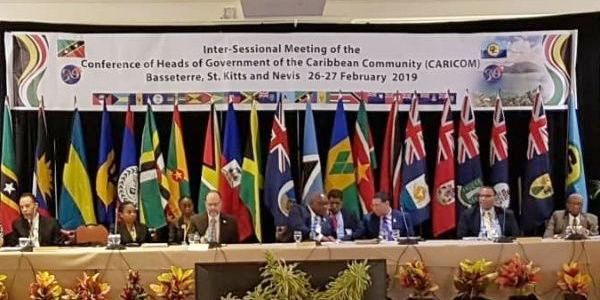
Meeting of Caricom, February 26-27 in St. Kitts-Navis reiterated their
rejection of outside interference in Venezuela.
Canada is trying to position Juan Guaidó in
the
Caribbean to the detriment of the constitutional government of
Nicolás Maduro. The U.S. needs to break Venezuela's
strategic alliance with Caribbean nations and shift the voting
balance in the Organization of American States. Canada, which has
meddled in the British West Indies with "aid" and warships for
decades, is sent as its errand boy to pull the chestnuts out of
the fire. Yet the Liberal duplicity is to feign that it is merely
acting in a disinterested manner at the request of the same
Guaidó. According to this fairy tale, Guaidó himself is
not able to make such an overture! A document from Global Affairs
admits "there has been no consensus among the countries of the
America."
***
The online Misión Verdad periodical has access
to a
confidential document ("Non-Paper") drafted by the government of
Canada, led by Justin Trudeau, with which they tried to build a
bridge of contact between the president of Venezuela's National
Assembly (in contempt) and some countries of the Eastern
Caribbean by proposing an instrument to displace
Petrocaribe.
On March 14 the Canadian government sent a low-level
official to a meeting of the Organization of Eastern Caribbean
States (OECS), held on the island of Guadeloupe, with the aim of
facilitating a direct link between Guaidó's team and the
prime ministers whose governments make up Caricom.
In Guadeloupe, Trudeau's special envoy asked for a
meeting
with the OECS leaders, which was rejected because he did not
possess the appropriate diplomatic level necessary for such a
meeting to take place. However, Caribbean representatives
accepted a courtesy lunch where the Canadian delivered the
following document:

The government of Canada in principle would have offered
a meeting between Juan Guaidó himself and the
representatives of these countries, which turned out to be false
something that annoyed the Caribbean leaders because it
represented a sign of little diplomatic seriousness.
In spite of this, they received the document with the
proposal of the Trudeau Administration, which at all times acted
as representative of the Venezuelan opposition, which proposed
creating an organization parallel to Petrocaribe called
"Cooperation and Energy Stability Agreement."
The proposal to undermine Petrocaribe produced yet
another
sign of annoyance from the representatives of the Caribbean
countries, who reminded the Canadian envoy of their full support
for dialogue between the parties in Venezuela. They also urged
the opposition to sit at the same table with the government of
Nicolás Maduro.
They also reminded Canada of the fact that Petrocaribe
is
being sabotaged by both U.S. sanctions and regional pressure
against Venezuela, supported both by the Trudeau government and
by the Venezuelan opposition represented in the National Assembly
(in contempt).
Without further ado, the Caribbean rejected the
Canadian
proposal.
The Canadian-led anti-Venezuelan coalition tried it
this
way:
- Buying off the good will of some Eastern Caribbean
countries with negotiations that the Caribbean representatives
themselves described as petty; and
- Offering high-level
diplomatic meetings that did not materialize, and sending
low-level advisors, thus showing disrespect to the Caribbean
governments.
Finally, the Caribbean representatives made it clear
that
they do not recognize Juan Guaidó. They insisted on their
common position that proposes peaceful means of dialogue and
respect for international law, outside the strategy of coup
d'état and "humanitarian intervention" planned by
Washington.
It should be remembered that the OECS is a regional
body that
promotes technical cooperation and the sustainable development of
six independent countries and three territories of the United
Kingdom and one of France in the Caribbean Sea.
- OECS Member States (full membership):
Antigua and Barbuda,
Commonwealth of Dominica, Grenada, Saint
Lucia, Federation of Saint Kitts and Nevis, Saint Vincent and the
Grenadines, Montserrat (UK Dependency)
- OECS Member States (associated membership):
Anguilla (UK
Dependency), Martinique (French Overseas
Department), British Virgin Islands (UK Dependency).

International Court of Justice Rules
British Occupation
of the Chagos Islands Illegal

Protest outside British Parliament after a court ruling barring Chagos
Islanders from returning to their homeland, October 22, 2008.
TML Weekly
welcomes the February 25 ruling of the International Court of Justice
(ICJ) on the Chagos
Islands. In a majority decision of 13 to 1, with all the judges from EU
countries amongst
those finding against the UK, the ICJ ruled that the continued British
occupation of the
Chagos Islands is illegal and ordered the UK to return the islands to
Mauritius "as rapidly as
possible." The islands were seized by the British in 1965 and the
people forcibly removed in
1971 to permit the U.S. to build a military base on the island of Diego
Garcia. This base
plays a criminal role in the U.S. striving for world hegemony.
The British Parliament immediately rejected the ruling.
A Foreign Office spokesperson gave
the following self-serving response on February 25, "This is an
advisory opinion, not a
judgment. Of course, we will look at the detail of it carefully. The
defence facilities on the
British Indian Ocean Territory help to protect people here in Britain
and around the world
from terrorist threats, organized crime and piracy."
Former British diplomat Craig Murray scoffed at this
announcement, "This represents a
serious escalation in the UK's rejection of multilateralism and
international law and a move
towards joining the U.S. model of exceptionalism, standing outside the
rule of international
law. As such, it is arguably the most significant foreign policy
development for generations.
In the Iraq war, while Britain launched war without UN Security Council
authority, it did so
on a tenuous argument that it had Security Council authority from
earlier resolutions. The UK
was therefore not outright rejecting the international system. On
Chagos it is now simply
denying the authority of the International Court of Justice; this is
utterly unprecedented."
(See article below.)
The ICJ is the UN's highest court, and the longstanding
injustice against the Chagos Islanders
was referred to it by the General Assembly in June 2017, vis-a-vis the
UN process of
decolonization, by a vote of 94 to 15 in favour of a resolution from
Mauritius. In its 2018
submission to the ICJ, Mauritius' lawyers argued it was coerced into
giving up the Chagos
Islands, in breach of 1960 UN Resolution 1514, which specifically bans
the breakup of
colonies before independence.
The ICJ ruling has no binding status but for the British
to dispute it is not acceptable. As
Craig Murray points out, Britain is outrightly flouting the
International Rule of Law and this
is a matter of serious concern because nothing justifies British and
U.S. crimes against
humanity committed in the name of high ideals.
 When the British seized the
islands, Diego Garcia was
the largest and only inhabited island in
the British Indian Ocean Territory, usually abbreviated as "BIOT." The
British brutally
expelled the total population of the atoll -- Chagossians or Chagos
Islanders -- to facilitate the
establishment of the U.S. military base. Today Diego Garcia is one of
the five control bases
for the Global Positioning System operated by the United States
military.[1] The island
provided a "fixed aircraft carrier" for the U.S. during the Iranian
revolution (1978-1979), the
Iraqi invasion of Kuwait (1990), Operation Enduring Freedom (the U.S.
global "war on
terror," 2001-2014) and Operation Iraqi Freedom (2003-2011). The atoll
shelters the ships of
the U.S. Marine Pre-Positioning Squadron Two. These ships carry
equipment and supplies to
support a major armed force with tanks, armoured personnel carriers,
munitions, fuel, spare
parts and even a mobile field hospital. Additionally, Diego Garcia was
used as a storage
section for U.S. cluster bombs as a detour from UK parliamentary
oversight. The British
government also colluded with the CIA to use the U.S. base for its
extralegal renditions
and torture. When the British seized the
islands, Diego Garcia was
the largest and only inhabited island in
the British Indian Ocean Territory, usually abbreviated as "BIOT." The
British brutally
expelled the total population of the atoll -- Chagossians or Chagos
Islanders -- to facilitate the
establishment of the U.S. military base. Today Diego Garcia is one of
the five control bases
for the Global Positioning System operated by the United States
military.[1] The island
provided a "fixed aircraft carrier" for the U.S. during the Iranian
revolution (1978-1979), the
Iraqi invasion of Kuwait (1990), Operation Enduring Freedom (the U.S.
global "war on
terror," 2001-2014) and Operation Iraqi Freedom (2003-2011). The atoll
shelters the ships of
the U.S. Marine Pre-Positioning Squadron Two. These ships carry
equipment and supplies to
support a major armed force with tanks, armoured personnel carriers,
munitions, fuel, spare
parts and even a mobile field hospital. Additionally, Diego Garcia was
used as a storage
section for U.S. cluster bombs as a detour from UK parliamentary
oversight. The British
government also colluded with the CIA to use the U.S. base for its
extralegal renditions
and torture.
Australian journalist and film-maker John Pilger has
been one of the champions of the Chagos
islanders. His 2004 film, Stealing a Nation, alerted much of
the world to their plight.
To view the film, click here.
Note
1. "The Mystery of Malaysia
Airlines Flight MH370," Tony
Seed, TML Weekly, April
19, 2014.

- John Pilger -
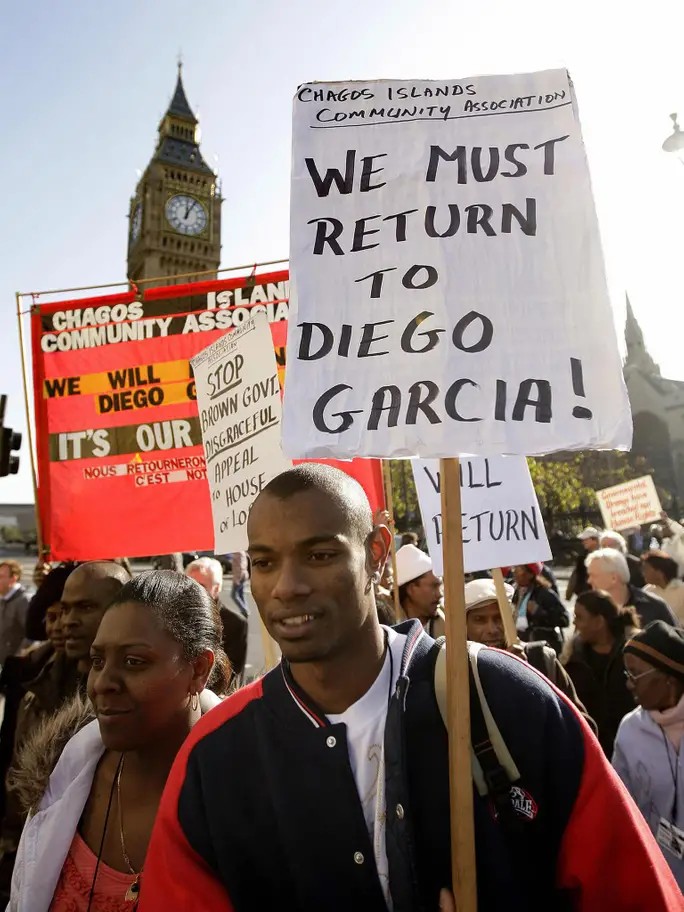 There are times when one
tragedy tells us how a whole
system works behind its democratic façade and helps us
understand how much of the world is run for the benefit of the
powerful and how governments often justify their actions with
lies. There are times when one
tragedy tells us how a whole
system works behind its democratic façade and helps us
understand how much of the world is run for the benefit of the
powerful and how governments often justify their actions with
lies.
In the late 1960s and early 1970s, the British
Government of
Harold Wilson expelled the entire population of the Chagos
Islands, a British crown colony in the Indian Ocean, to make way
for an American military base on Diego Garcia, the largest
island. In high secrecy, the Americans offered a discounted
Polaris nuclear submarine as payment for use of the islands.
The truth of this conspiracy did not emerge for another
20
years when secret official files were unearthed at the Public
Record Office, in London, by lawyers acting for the former
inhabitants of the coral archipelago. Historian Mark Curtis
described the enforced depopulation in Web of Deceit, his
2003 book about Britain's post-war foreign policy. The British
media all but ignored it; the Washington Post called it a
"mass kidnapping."
I first heard of the plight of the Chagossians in 1982,
during
the Falklands War. Britain had sent a fleet to the aid of 2,000
Falkland Islanders at the other end of the world while another
2,000 British citizens from islands in the Indian Ocean had been
expelled by British governments and hardly anyone knew.
The difference was that the Falkland Islanders were
white and
the Chagossians were black and, crucially, the United States
wanted the islands -- especially Diego Garcia -- as a major
military base from which to command the Indian Ocean.
The Chagos Islands were a natural paradise. The 1,500
islanders were self-sufficient with an abundance of natural
produce, and extreme weather was rare. There were thriving
villages, a school, a hospital, a church, a railway and an
undisturbed way of life -- until a secret 1961 Anglo-American
survey of Diego Garcia led to the deportation of the entire
population.
The expulsions began in 1965. People were herded into
the hold
of a rusting ship, the women and children forced to sleep on a
cargo of bird fertiliser. They were dumped in the Seychelles,
where they were held in prison cells, then shipped on to
Mauritius, where they were taken to a derelict housing estate
with no water or electricity.
Twenty-six families died here in brutal poverty, there
were
nine suicides; and girls were forced into prostitution to
survive.
I interviewed many of them. One woman recalled how she
and her
husband took their baby to Mauritius for medical treatment and
were told they could not return. The shock was so great that her
husband suffered a stroke and died. Others described how the
British and Americans gassed their dogs -- beloved pets to the
islanders -- as an intimidation to pack up and leave. Lizette
Talate told me how her children had "died of sadness." She
herself has since died.
The depopulation of the archipelago was completed within
10
years and Diego Garcia became home to one of the United States'
biggest bases, with more than 2,000 troops, two bomber runways,
30 warships, facilities for nuclear-armed submarines and a
satellite spy station. Iraq and Afghanistan were bombed from the
former paradise. Following 9/11, America's perceived enemies were
"rendered" here and there is evidence they were tortured.
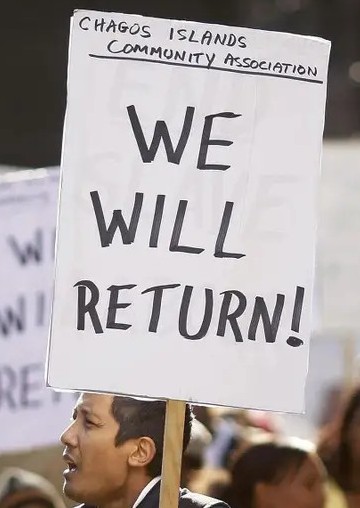 All the while, the Chagos
remained a British
possession and its people a British responsibility. After
demonstrating on the streets of Mauritius in 1982, the exiled
islanders were given the derisory compensation of less than
£3,000 each by the British government. All the while, the Chagos
remained a British
possession and its people a British responsibility. After
demonstrating on the streets of Mauritius in 1982, the exiled
islanders were given the derisory compensation of less than
£3,000 each by the British government.
When declassified British Foreign Office files were
discovered, the full sordid story was laid bare. One file was
headed, 'Maintaining the Fiction' and instructed British
officials to lie that the islanders were itinerant workers, not a
stable indigenous population. Secretly, British officials
recognized they were open to "charges of dishonesty" because they
were planning to "cook the books" -- lie.
In 2000, the High Court in London ruled the expulsions
illegal. In response, the Labour government of Tony Blair invoked
the Royal Prerogative, an archaic power invested in the Queen's
"Privy Council" that allows the government to bypass Parliament
and the courts. In this way, the government hoped, the islanders
could be prevented from ever returning home.
The High Court again ruled that the Chagossians were
entitled
to return and in 2008, the Foreign Office appealed to the Supreme
Court. Although based on no new evidence, the appeal was
successful.
I was in Parliament -- where the highest court then sat
in the
House of Lords -- on the day of the judgement. I have never seen
such shame-faced judges in what was clearly a political
decision.
In 2010, the British government sought to reinforce this
by
establishing a marine nature reserve around the Chagos Islands.
The ruse was exposed by WikiLeaks, which published a U.S. Embassy
diplomatic cable from 2009 that read, "Establishing a marine
reserve might indeed, as the FCO's [Colin] Roberts stated, be the
most effective long-term way to prevent any of the Chagos
Islands' former inhabitants or descendants from resettling."
Now the International Court of Justice has decided that
the
British government of the day had no right in law to separate the
Chagos Islands from Mauritius when it granted Mauritius
independence. The Court, whose powers are advisory, has said
Britain must end its authority over the islands. By extension,
that almost certainly makes the U.S. base illegal.
Of course, the indefatigable campaign of the Chagossians
and
their supporters will not stop there: not until the first
islander goes home.

- Craig Murray -
In [the British] Parliament, [MP] Alan Duncan for the
government has just rejected yesterday's [February 25] stunning
result at the International Court of Justice (ICJ), where British
occupation of the Chagos Islands was found unlawful by a majority
of 13 to 1, with all the judges from EU countries amongst those
finding against the UK.
 This represents a serious
escalation in the UK's
rejection of
multilateralism and international law and a move towards joining
the U.S. model of exceptionalism, standing outside the rule of
international law. As such, it is arguably the most significant
foreign policy development for generations. In the Iraq war,
while Britain launched war without UN Security Council authority,
it did so on a tenuous argument that it had Security Council
authority from earlier resolutions. The UK was therefore not
outright rejecting the international system. On Chagos it is now
simply denying the authority of the International Court of
Justice; this is utterly unprecedented. This represents a serious
escalation in the UK's
rejection of
multilateralism and international law and a move towards joining
the U.S. model of exceptionalism, standing outside the rule of
international law. As such, it is arguably the most significant
foreign policy development for generations. In the Iraq war,
while Britain launched war without UN Security Council authority,
it did so on a tenuous argument that it had Security Council
authority from earlier resolutions. The UK was therefore not
outright rejecting the international system. On Chagos it is now
simply denying the authority of the International Court of
Justice; this is utterly unprecedented.
Duncan put forward two arguments. Firstly that the ICJ
opinion was "only" advisory to the General Assembly. Secondly, he
argued that the ICJ had no jurisdiction as the case was a
bilateral dispute with Mauritius (and thus could only go before
the ICJ with UK consent, which is not given).
But here Duncan is -- against all British precedent and
past
policy -- defying a ruling of the ICJ. The British government
argued strenuously in the present case against ICJ jurisdiction,
on just the grounds Duncan cited. The ICJ considered the UK's
arguments, together with arguments from 32 other states and from
the African Union. The ICJ ruled that it did have jurisdiction,
because this was not a bilateral dispute but part of the UN
ordained process of decolonization.
The International Court of Justice's ruling on this
point is
given at length in paras 83 to 91 of its Opinion. This is perhaps
the key section:
88. The Court therefore concludes that the opinion
has
been requested on the matter of decolonization which is of
particular concern to the United Nations. The issues raised by
the request are located in the broader frame of reference of
decolonization, including the General Assembly's role therein,
from which those issues are inseparable (Western Sahara, Advisory
Opinion, I.C.J. Reports 1975, p. 26, para. 38; Legal Consequences
of the Construction of a Wall in the Occupied Palestinian
Territory, Advisory Opinion, I.C.J. Reports 2004 (I), p. 159,
para. 50).
89. Moreover, the Court observes that there may be
differences of views on legal questions in advisory proceedings
(Legal Consequences for States of the Continued Presence of South
Africa in Namibia (South West Africa) notwithstanding Security
Council Resolution 276 (1970), Advisory Opinion, I.C.J. Reports
1971, p. 24, para. 34). However, the fact that the Court may have
to pronounce on legal issues on which divergent views have been
expressed by Mauritius and the United Kingdom does not mean that,
by replying to the request, the Court is dealing with a bilateral
dispute.
90. In these circumstances, the Court does not
consider that
to give the opinion requested would have the effect of
circumventing the principle of consent by a State to the judicial
settlement of its dispute with another State. The Court therefore
cannot, in the exercise of its discretion, decline to give the
opinion on that ground.
91. In light of the foregoing, the Court concludes
that there
are no compelling reasons for it to decline to give the opinion
requested by the General Assembly.
As stated at para 183, that the court did have
jurisdiction
was agreed unanimously, with even the U.S. judge (the sole
dissenter on the main question) in accord. For the British
government to reject the ICJ's unanimous ruling on jurisdiction,
and quote that in parliament as the reason for not following the
ICJ Opinion, is an astonishing abrogation of international law by
the UK. It really is unprecedented. The repudiation of the UN
Working Group on Arbitrary Detention over Julian Assange pointed
the direction the UK is drifting, but that body does not have the
prestige of the International Court of Justice.
The International Court of Justice represents the
absolute
pinnacle of, and embodies the principle of, international law. In
176 decisions, such as Nigeria vs Cameroon or Malaysia
vs Indonesia, potentially disastrous conflicts have been
averted by the states' agreement to abide by the rule of law. The
UK's current attack on the ICJ is a truly disastrous new
development.
I have taken it for granted that you know that the
reason the
UK refuses to decolonize the Chagos Islands is to provide an
airbase for the U.S. military on Diego Garcia. If Brexit goes
ahead, the Chagos Islands will also lead to a major foreign
policy disagreement between the UK and U.S. on one side, and the EU
on the other. The EU will be truly shocked by British repudiation
of the ICJ.
I have studied the entire and lengthy ICJ Opinion on
the
Chagos Islands, together with its associated papers, and I will
write further on this shortly.
Craig Murray is a former British diplomat.

March 21 -- International Day Against
Racial
Discrimination

The Communist Party of Canada (Marxist-Leninist) pays
first rate attention to making sure the rights of minorities are
given pride of place in society. In its rendering of rights it
takes up the main content of the problem of rights and its
relationship to the main content of modern democracy.
The question of minority rights arises both
historically as the struggle which began against medievalism and as it
expresses itself at the present time when representative democracy is
no longer up to the task of dealing with it. Whether it is the national
minorities as they exist all over the world as a result of the massive
dislocation caused by world imperialism and modern capitalism, which
have transformed the entire world into their market, or due to other
reasons, or whether it concerns linguistic, religious, political
minorities as well as LGBTQ rights, their rights are not guaranteed on
the basis of what is known as elite accommodation or "positive
discrimination" (affirmative action) or any such measures which
criminalize problems and people. Experience shows that no measures of
this kind have eliminated the discrimination against minorities which
is practised in the representative democracies where such measures have
been applied.
The source of discrimination or denial of the rights of
minorities in Canada is found in the absence of recognizing the
rights of citizenship as a matter of equal membership in a body
politic where equal rights and duties are recognized for all on
an equal basis. What exists in Canada is a hierarchy of rights
and ruling elites are treated on a privileged preferential basis
as the SNC-Lavalin scandal amply shows once again. It is quite
obvious that a hierarchy of rights leads to discrimination which
is supposed to be eliminated through elite accommodation and
positive discrimination. These measures only create further
hierarchies amongst those who are discriminated against, but they
do not eliminate discrimination or its basis.
Citizenship which recognizes equal rights and duties
for all
is the starting point of the defence of minority rights and not
the end. Nonetheless, if minorities did not fight for these
rights, there would naturally be no starting point and no end to
this problem. After having won the same rights and duties for
all, national minorities can then fight for all other equalities.
However, the demand for these equalities has to be put on this
basis right at the start.
 National minorities must be able
to educate their children in their languages if they so wish and be
able to develop their cultures. They have to
be provided with these facilities by ensuring that no citizen has
more rights and duties than another. Discrimination against any
religious minority or against atheists can be eliminated by
completely detaching religion from the state and ensuring that
practising the right to conscience remains a private and an
individual affair. Funding some religions and not others is a
matter of despicable pork barrel politics and should be banned,
while the access for all members of the polity to social programs,
including education and recreation without the danger of police
violence must be guaranteed. In the same manner, all violations,
all racism and racial discrimination have to be severely dealt
with as crimes under the penal code. In fact, they should be
meted the harshest punishment. National minorities must be able
to educate their children in their languages if they so wish and be
able to develop their cultures. They have to
be provided with these facilities by ensuring that no citizen has
more rights and duties than another. Discrimination against any
religious minority or against atheists can be eliminated by
completely detaching religion from the state and ensuring that
practising the right to conscience remains a private and an
individual affair. Funding some religions and not others is a
matter of despicable pork barrel politics and should be banned,
while the access for all members of the polity to social programs,
including education and recreation without the danger of police
violence must be guaranteed. In the same manner, all violations,
all racism and racial discrimination have to be severely dealt
with as crimes under the penal code. In fact, they should be
meted the harshest punishment.
As a starting point, CPC(M-L) pays first rate attention
to
the main content and requirement that all citizens must enjoy
equal rights and duties. At the same time, it demands that the
languages and cultures of all national minorities be defended
and, thirdly, that all racism and acts of racial discrimination
or racial violence must be severely dealt with.
All those who are interested in defending the rights of
minorities as the basis of defending the rights of all come
together in the course of the battles waged. The defence of the
rights of minorities is one of the most important steps to take
in settling scores with medievalism and its practices based on
privilege and mysteries of state in the manner decisions are
taken and policies set. The denial of the rights of minorities is
the very essence of the representative democracy which exists in
Canada at this time. There can be no illusion that minorities can
enjoy rights within the present representative democracy. The
defence of the rights of all minorities and opposition to all
forms of discrimination, including racial, and all forms of
violence, including racial, is a social responsibility.

Youth Worldwide Demand a Bright Future

Parliament Hill in Ottawa
On March 15, an estimated 1.5
million youth, in some 2,200 events in 130 countries worldwide took
part in a global Student Strike for Climate. This recent action is the
culmination of a movement of youth that began in 2015 under various
names
-- Fridays for Future, Youth for Climate and Youth Strike 4 Climate --
to demand action to put an end to global warming. They are making clear
their responsibility to look after the social and natural environment
and are demanding that governments today also take up their
responsibilities to ensure the well-being of their generation and those
yet to come. A global student strike on November
30, 2015, the first day of the COP 21 UN Climate Conference, involved
50,000 people in more than 100 countries.
In Canada, there was participation from coast to coast to coast, with
outstanding organization and participation from the Quebec youth in
particular. In Quebec alone, 150,000 students took part, with 50,000
students marching through the streets of Montreal. Organizers in Canada
are planning another mass action for the fall, to ensure their concerns
are on the agenda of the 2019 federal election. Meanwhile, weekly
Fridays for Future actions continue around the world.
Gatineau-Ottawa
 
 
Quebec
Montreal

 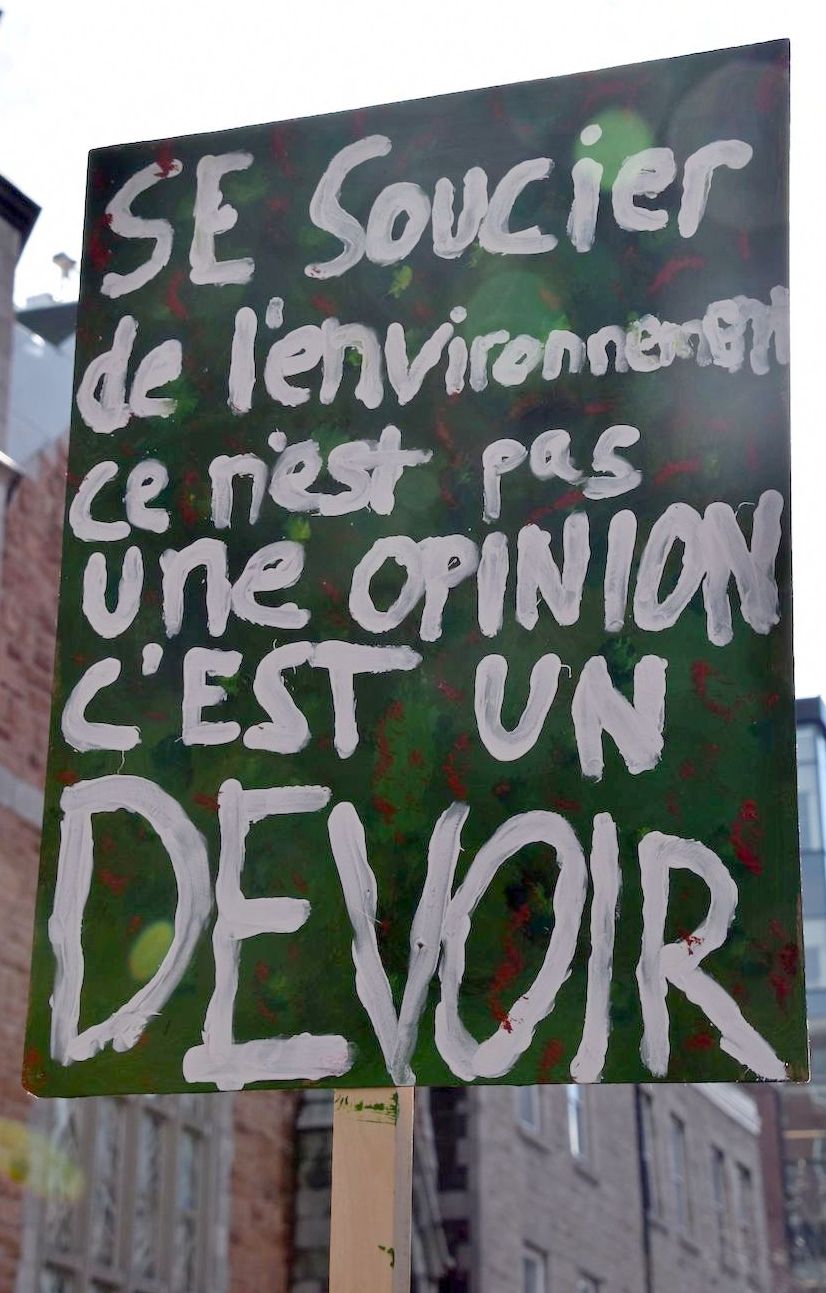
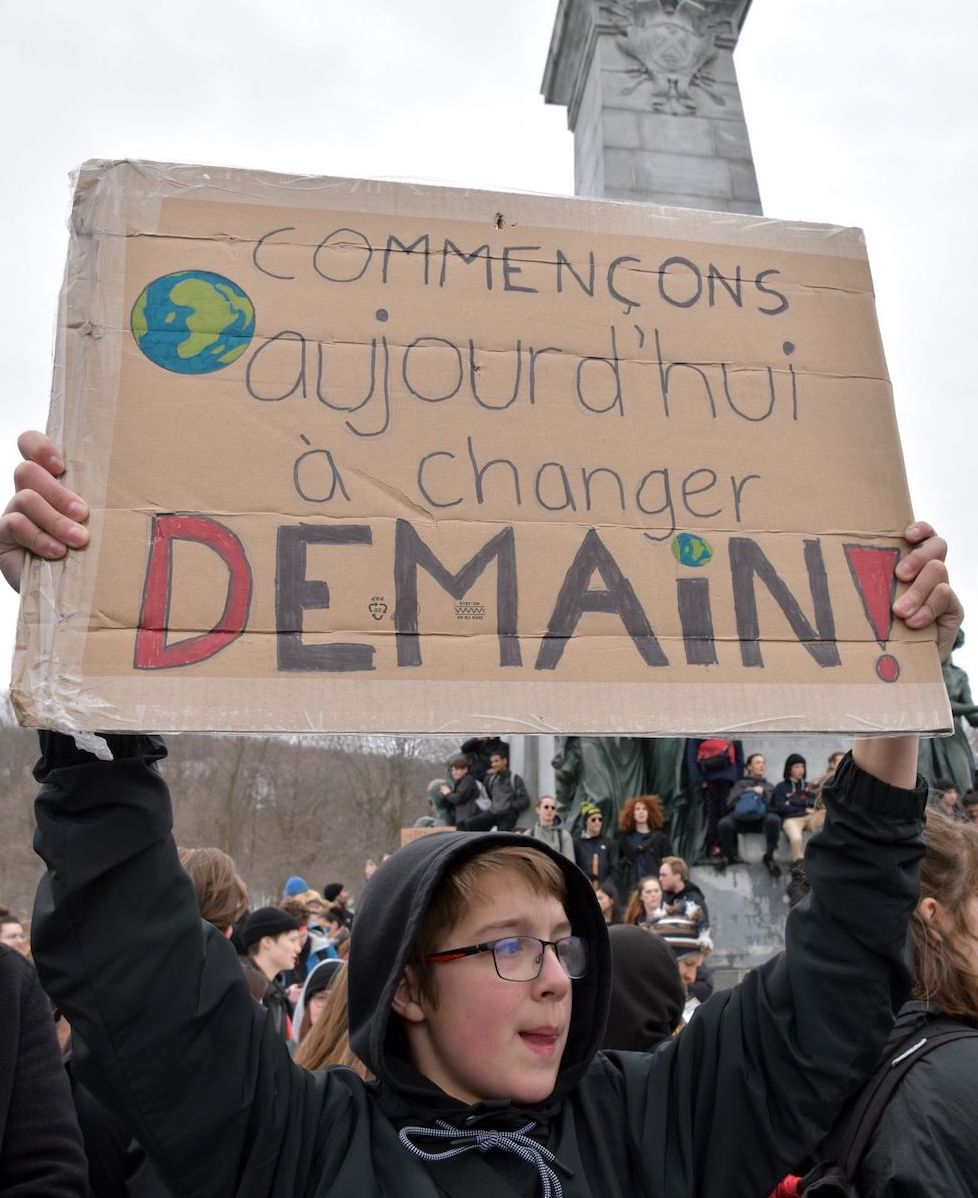 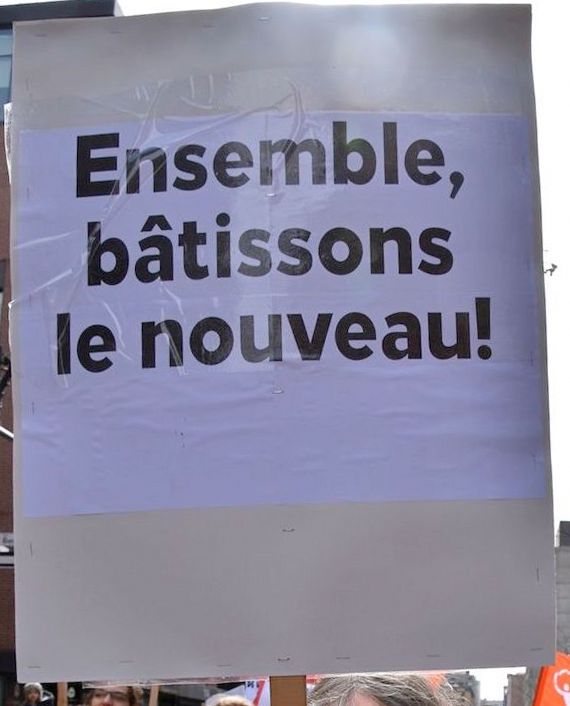 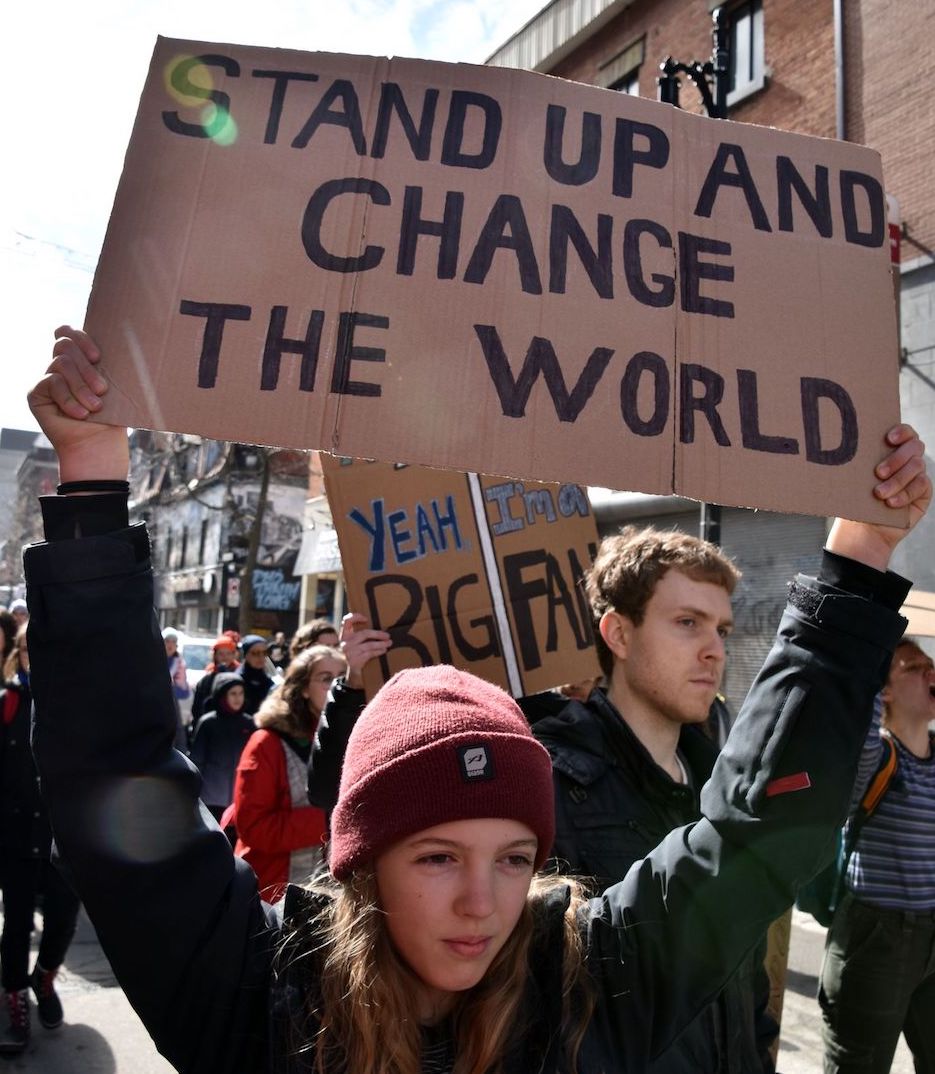
 
 
 

Magdalen Islands and Gaspésie
 
Chicoutimi

Sherbrooke

La Pocatière

Sept-Îles
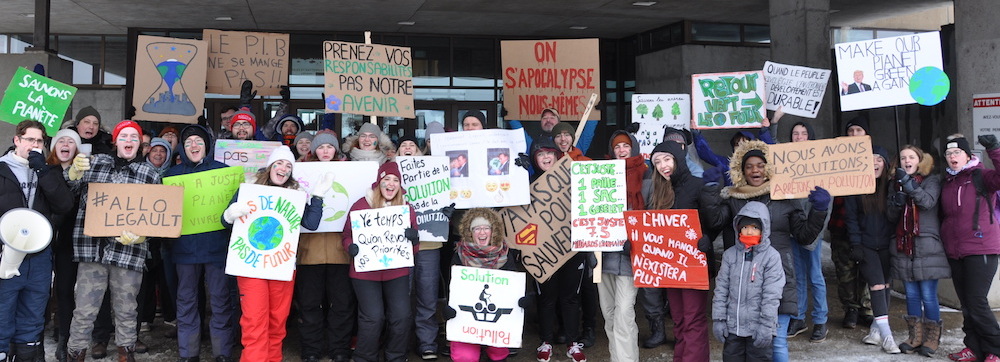
Baie-Comeau

Quebec City

Canada
St. John's

Fredericton
 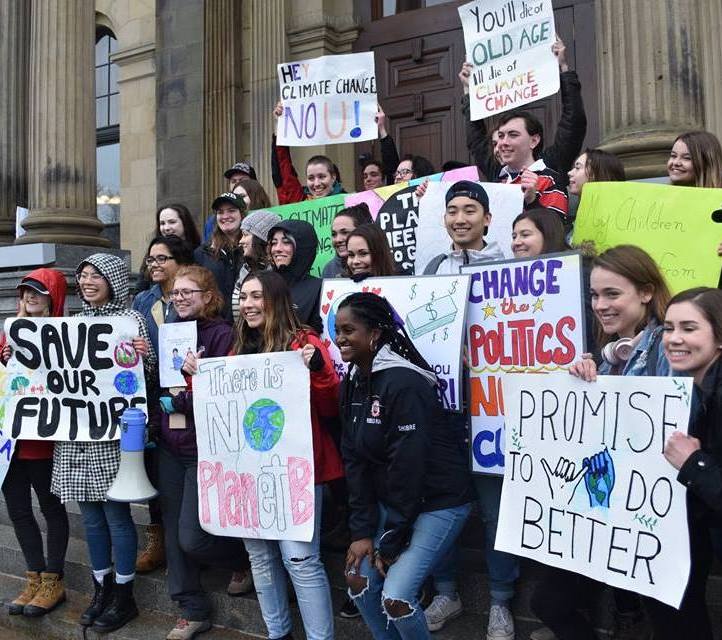
Halifax
  
Kingston

Toronto


 
Hamilton

Kitchener

Winnipeg
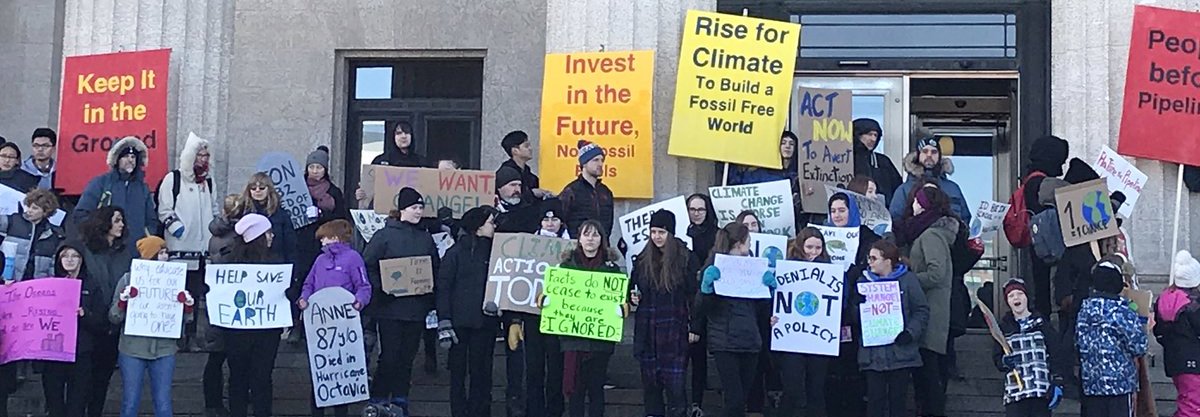
 
Regina

 
Saskatoon
 
Edmonton


Calgary

Vancouver

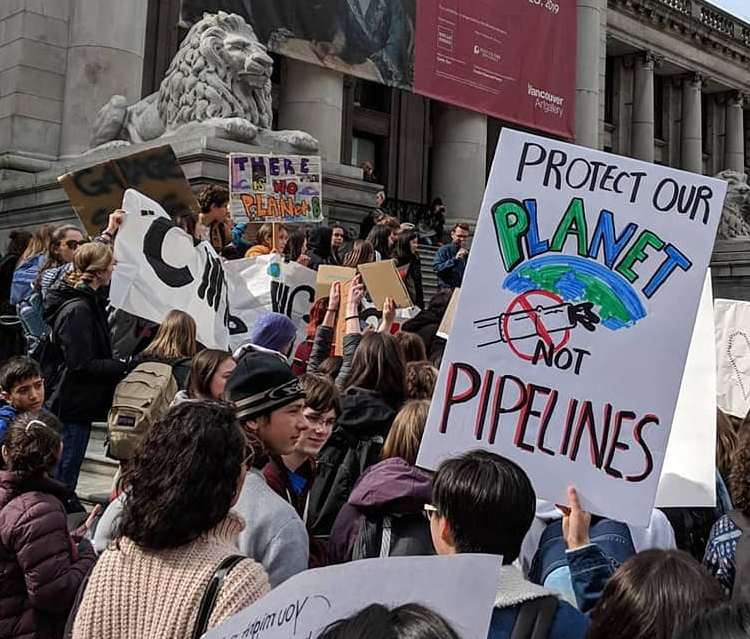 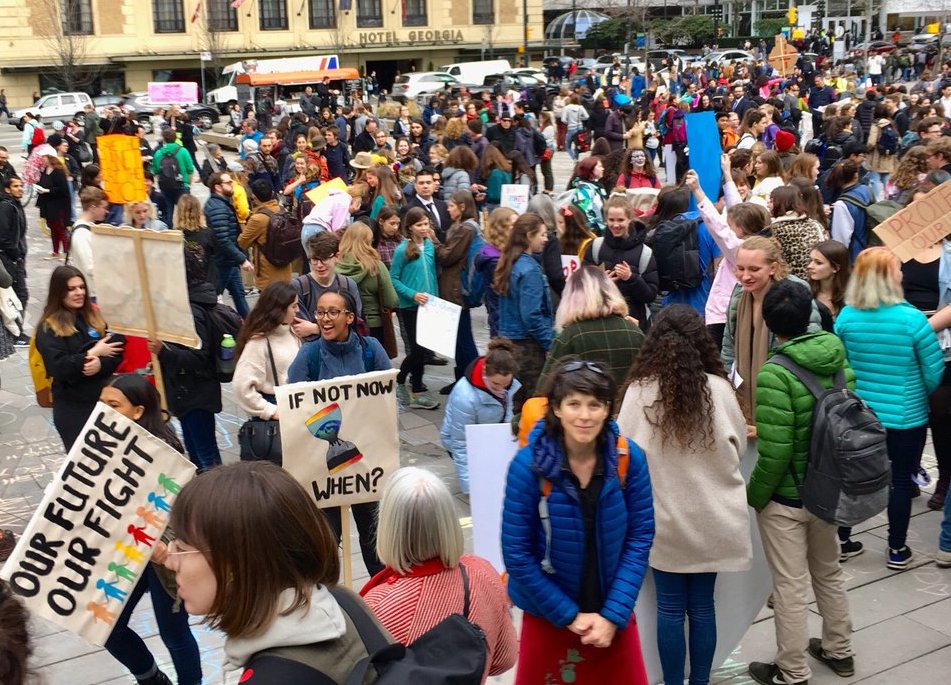
Victoria

 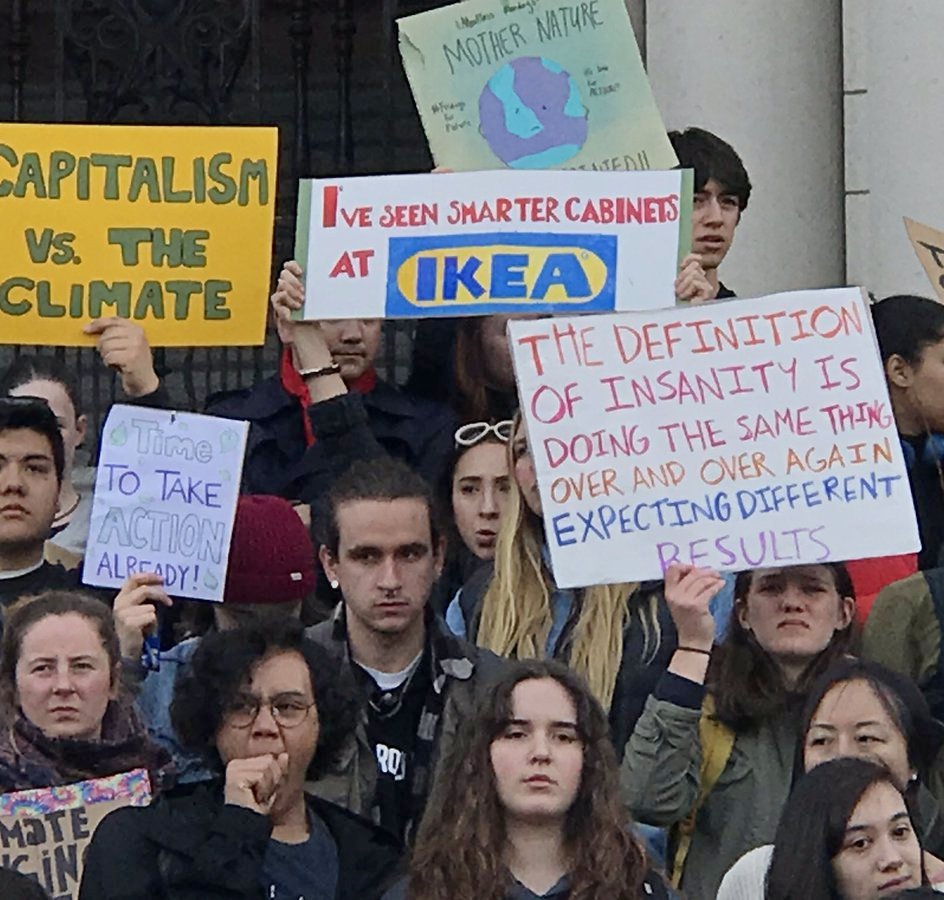 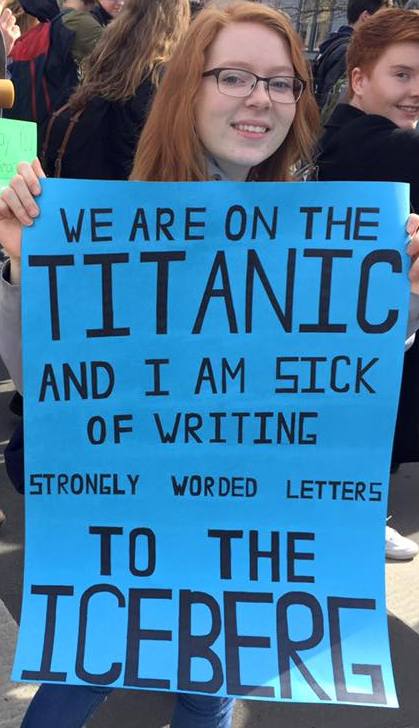
Whitehorse
 
Yellowknife

Inuvik

Asia and Oceania
Tokyo, Japan
 
Seoul, Korea
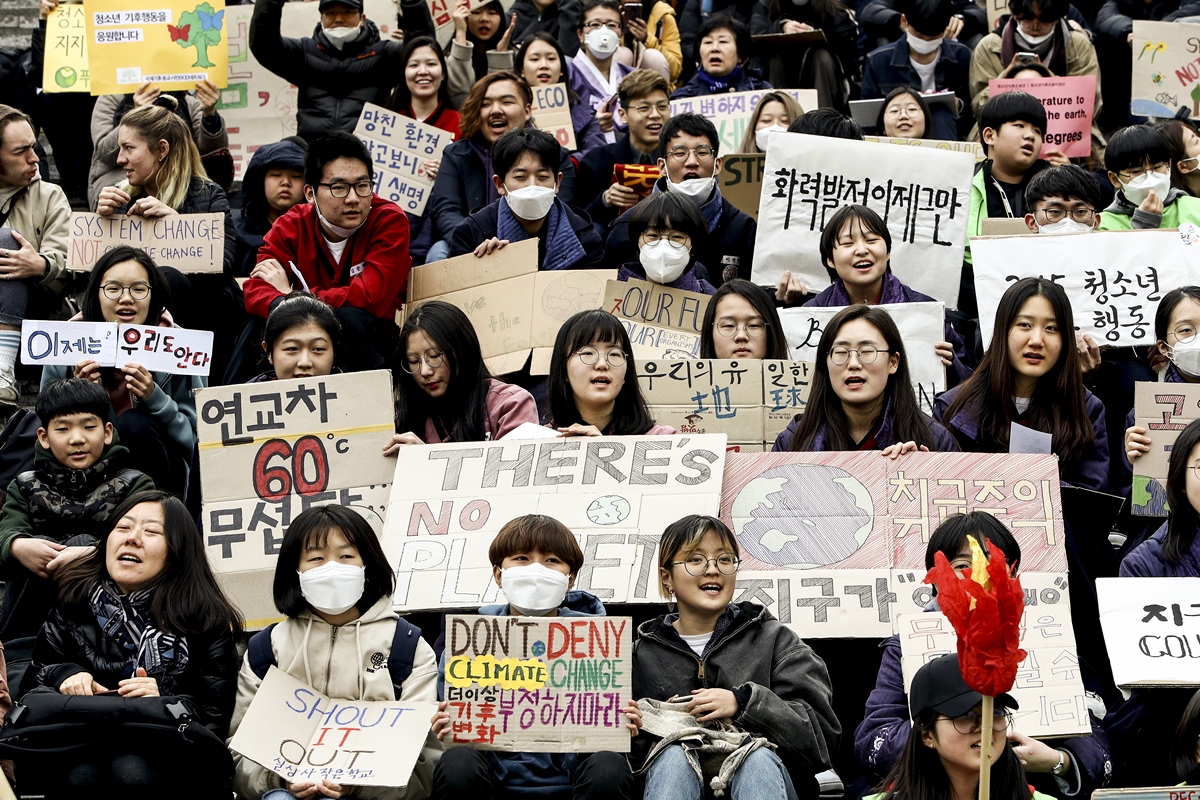
Hong Kong, China


Quezon City, Philippines

Bangalore, India

Delhi, India
 

Melbourne, Australia


Sydney, Australia

Auckland, New Zealand

Nelson, New Zealand

Wellington, New Zealand
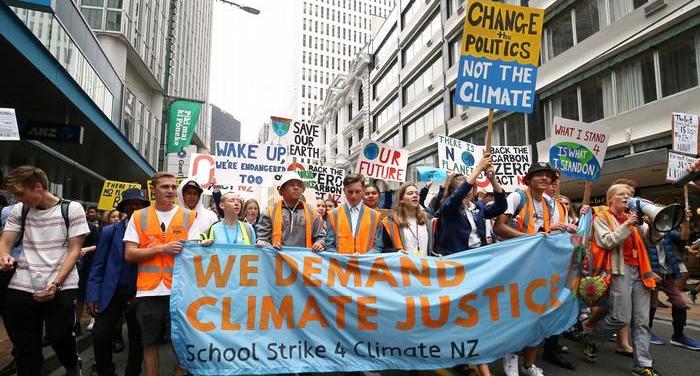
Vanuata

Africa
Dakar, Senegal
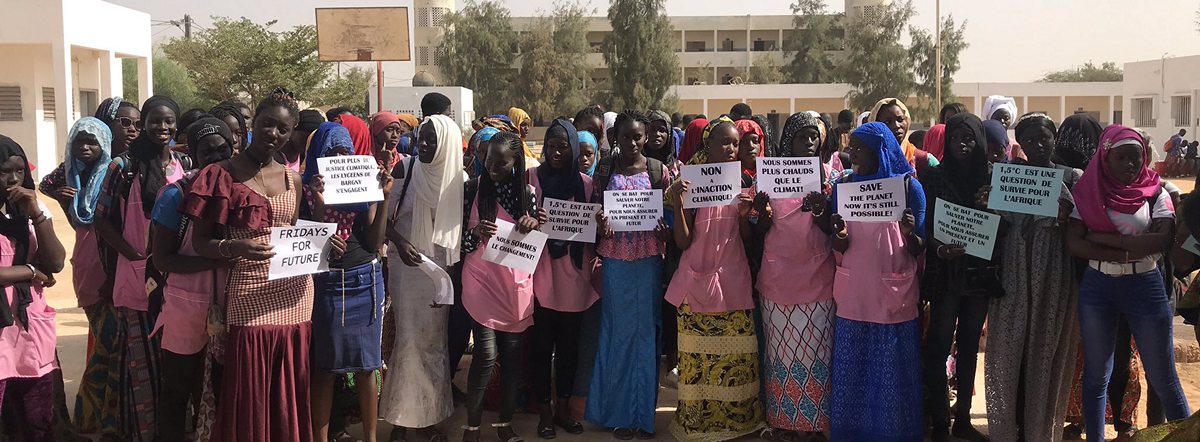
Capetown, South Africa
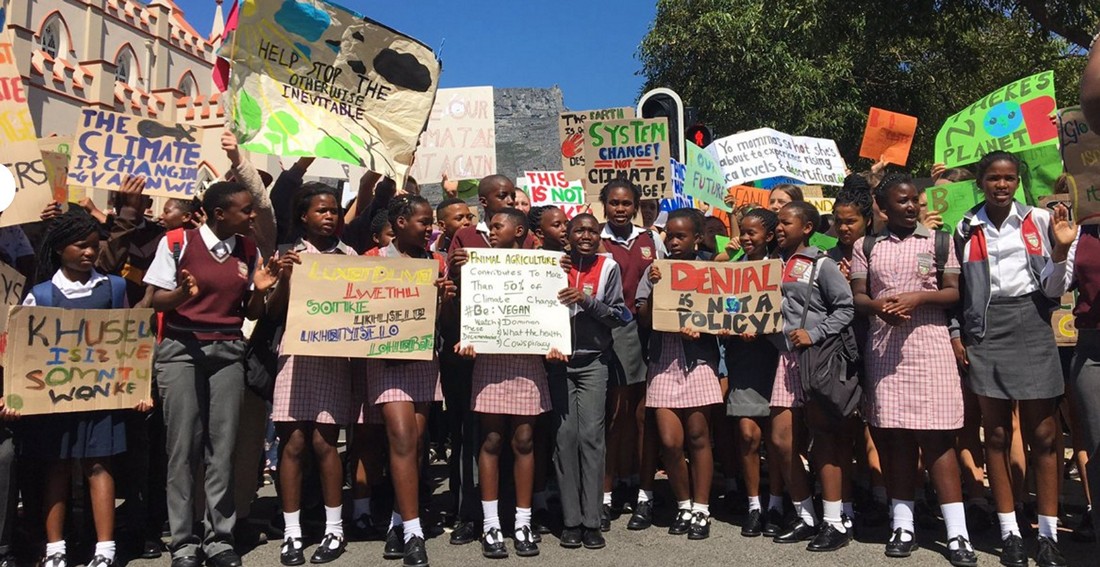
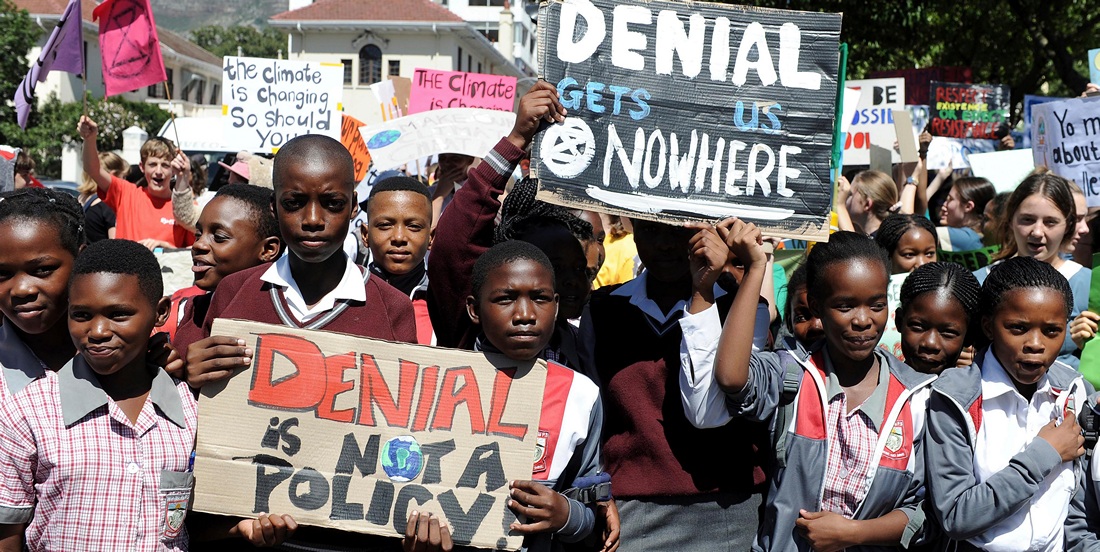
Latin America
Mexico City, Mexico

Santiago, Chile

United States
Washington, DC

New York City, New York
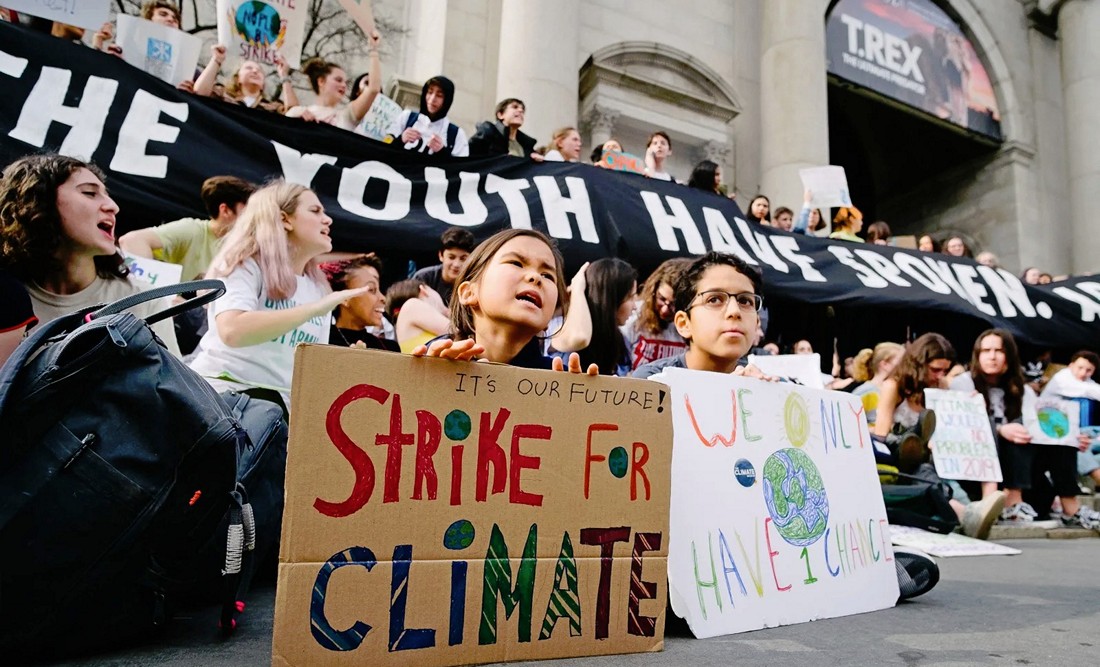

Minneapolis-St. Pauls, Minnesota
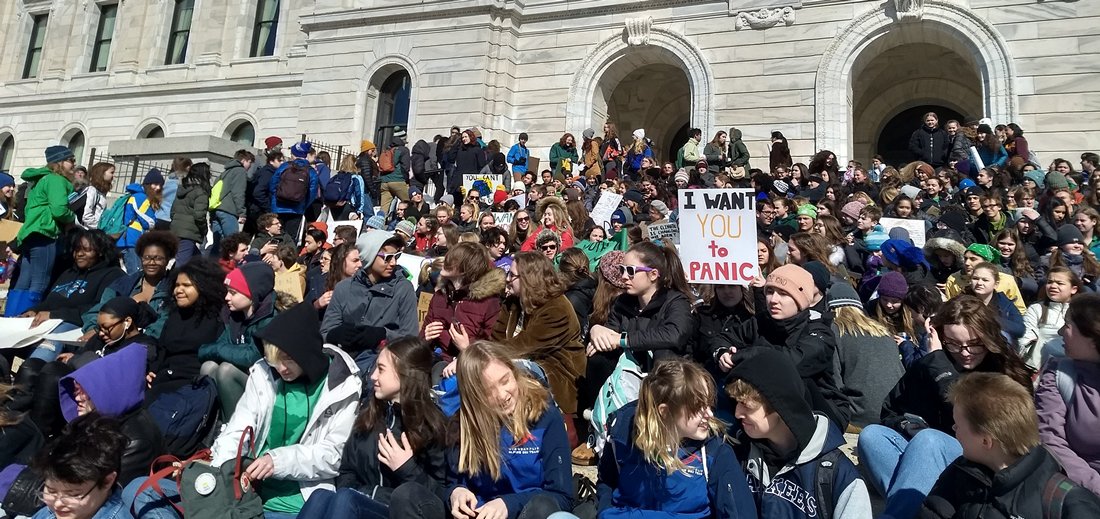
San Francisco, California
Europe
Reykjavik, Iceland


Helsinki, Finland


Stockholm, Sweden

Berlin, Germany


Dresden, Germany

Zurich, Switzerland

Amsterdam, Netherlands

Brussels, Belguim
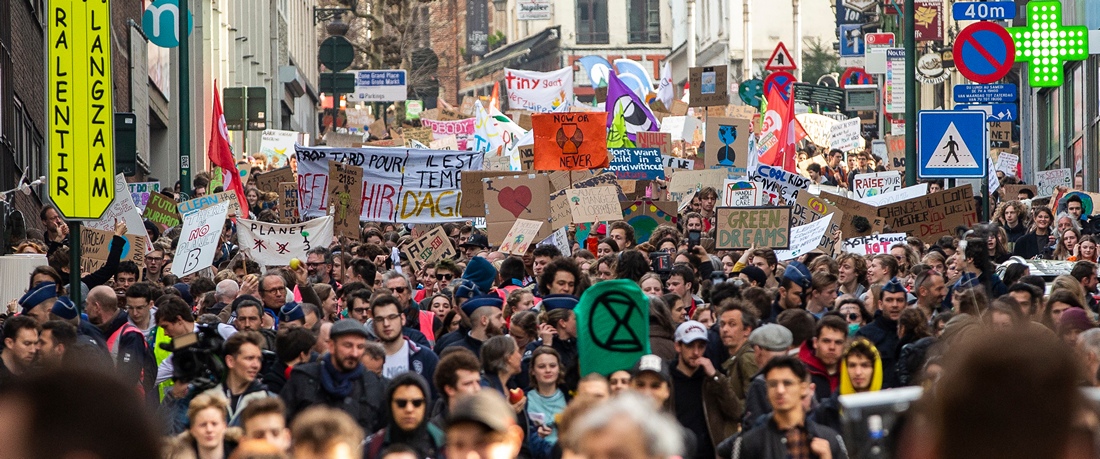
Edinburgh, Scotland

London, England
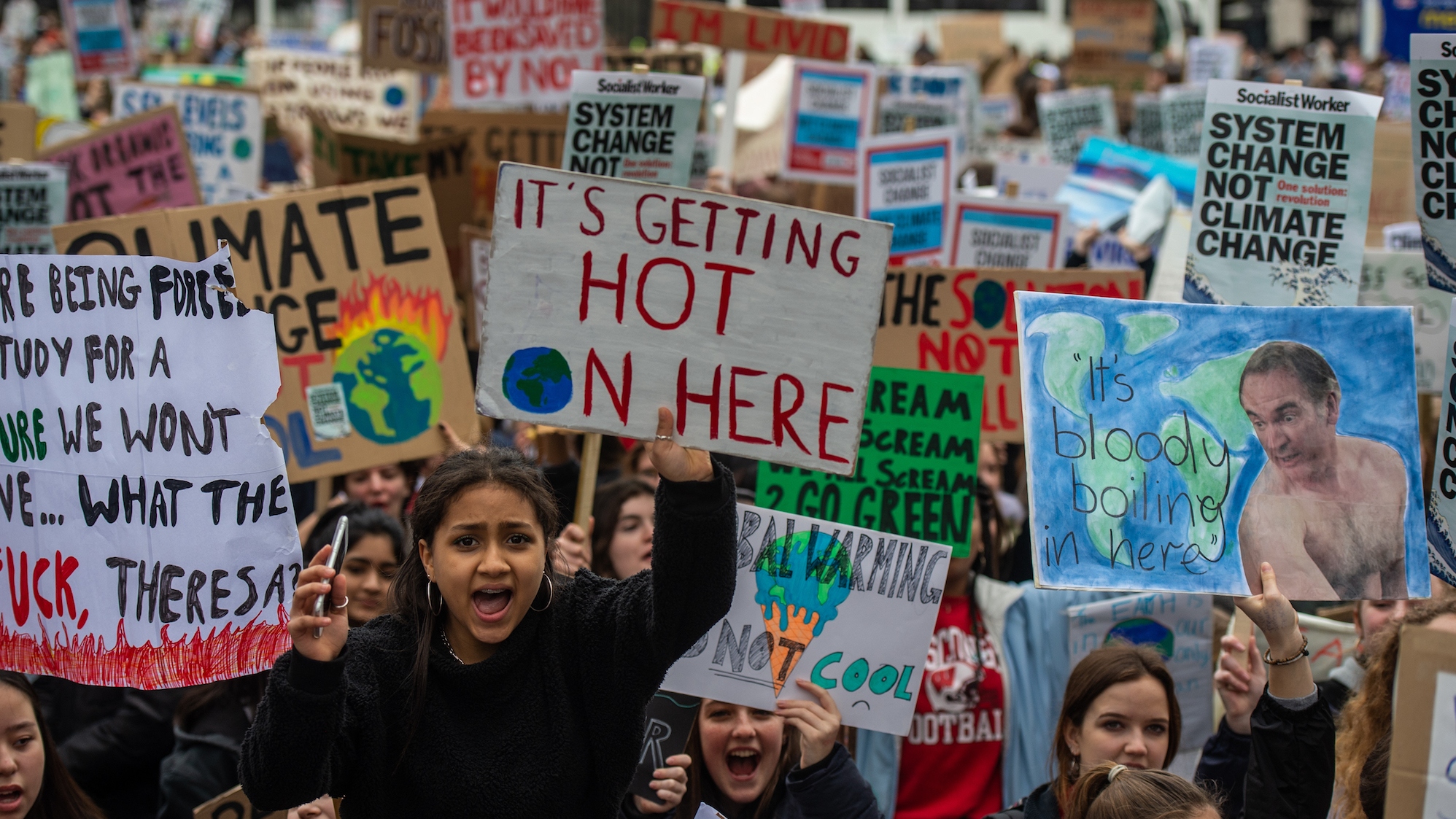
Dublin, Ireland

Paris, France


Lisbon, Portugal

Barcelona, Spain
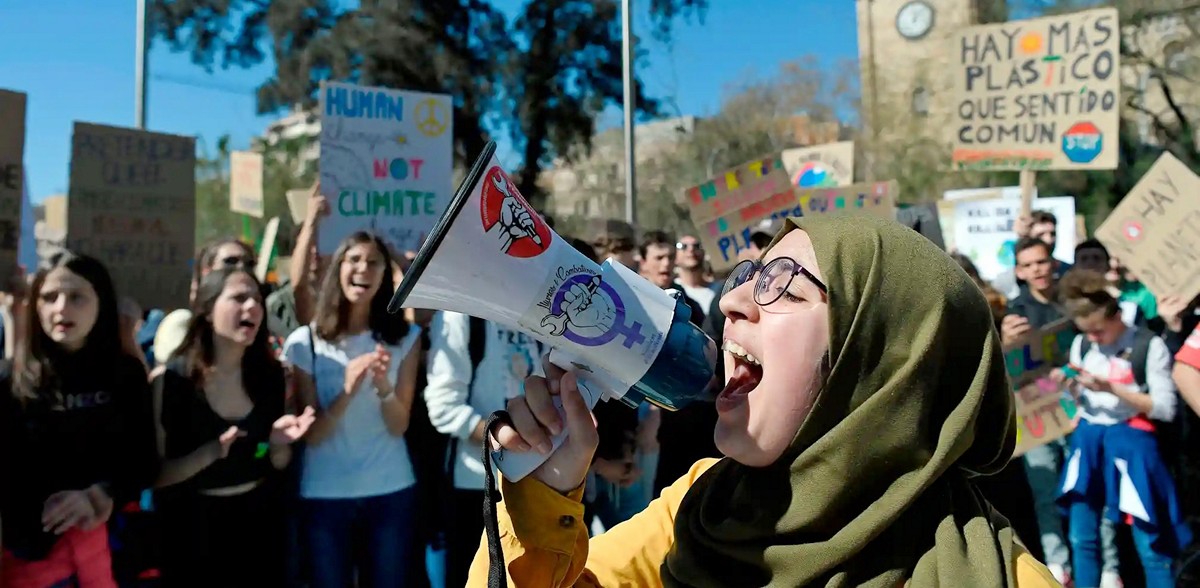
Milan, Italy
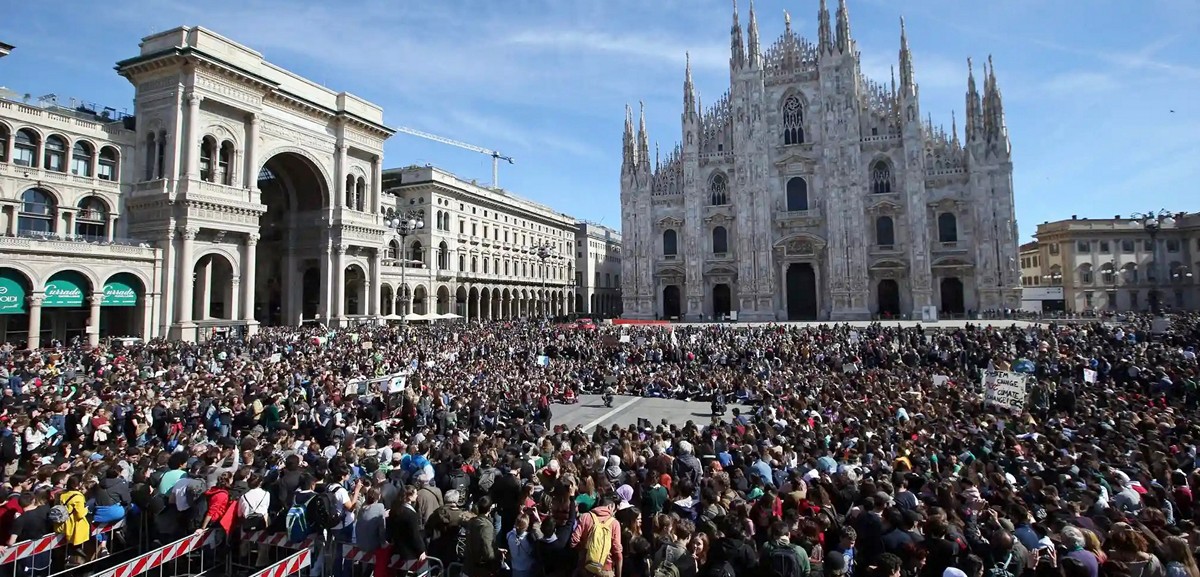
Turin, Italy

Athens, Greece

Prague, Czech Republic


Zagreb, Croatia

Kiev, Ukraine


(To access articles individually
click on
the black headline.)
PREVIOUS
ISSUES | HOME
Website: www.cpcml.ca
Email: editor@cpcml.ca
|


 The working class wants a
government which supports them in
its defence of what belongs to them by right as the actual
producers of all value, and which launches the economy in a new
direction that creates stability and security for all.
The working class wants a
government which supports them in
its defence of what belongs to them by right as the actual
producers of all value, and which launches the economy in a new
direction that creates stability and security for all.
 That
feeling of optimism has vanished.
Despite its efforts to bring about some reforms for which the working
class and people fought, four years of NDP government have
deepened the crisis of credibility in which the system called a
representative democracy is mired. Bringing political parties
over which people exercise no control to form governments does
not give rise to people's empowerment. Any perception that might
have lingered that the cartel party system has anything to do
with permitting the people to set government policies has
vanished as a result of four years in which Big Oil continues to
dictate what can and cannot be done in Alberta.
That
feeling of optimism has vanished.
Despite its efforts to bring about some reforms for which the working
class and people fought, four years of NDP government have
deepened the crisis of credibility in which the system called a
representative democracy is mired. Bringing political parties
over which people exercise no control to form governments does
not give rise to people's empowerment. Any perception that might
have lingered that the cartel party system has anything to do
with permitting the people to set government policies has
vanished as a result of four years in which Big Oil continues to
dictate what can and cannot be done in Alberta. Proper reporting and inquiry
would necessarily take up the
question of who sets the agenda for the Alberta economy that led
to the present crisis and how those powerful global energy
oligarchs benefit from the agenda they set. Needless to say, the
oligarchs do not want any investigation or discussion that would
hold them to account for the present difficulties.
Proper reporting and inquiry
would necessarily take up the
question of who sets the agenda for the Alberta economy that led
to the present crisis and how those powerful global energy
oligarchs benefit from the agenda they set. Needless to say, the
oligarchs do not want any investigation or discussion that would
hold them to account for the present difficulties.
 roduction under imperialism
today, at a time a
neo-liberal
agenda prevails, is characterized by anarchy and violence.
Opportunism is the name of the game and not only can nothing be
consciously planned but, worse still, nothing can be brought
under control on the basis of the imperialists' striving for
hegemony on every front. In contrast, the central feature of a
modern pro-social economy would be to meet the needs of people
and protect the environment as a matter of course, something
which can be achieved on the basis of scientific planning and a
modern pro-social outlook that upholds social responsibility as a
matter of course. Nobody can argue that this is what we have
now.
roduction under imperialism
today, at a time a
neo-liberal
agenda prevails, is characterized by anarchy and violence.
Opportunism is the name of the game and not only can nothing be
consciously planned but, worse still, nothing can be brought
under control on the basis of the imperialists' striving for
hegemony on every front. In contrast, the central feature of a
modern pro-social economy would be to meet the needs of people
and protect the environment as a matter of course, something
which can be achieved on the basis of scientific planning and a
modern pro-social outlook that upholds social responsibility as a
matter of course. Nobody can argue that this is what we have
now.


 When the British seized the
islands, Diego Garcia was
the largest and only inhabited island in
the British Indian Ocean Territory, usually abbreviated as "BIOT." The
British brutally
expelled the total population of the atoll -- Chagossians or Chagos
Islanders -- to facilitate the
establishment of the U.S. military base. Today Diego Garcia is one of
the five control bases
for the Global Positioning System operated by the United States
military.[1] The island
provided a "fixed aircraft carrier" for the U.S. during the Iranian
revolution (1978-1979), the
Iraqi invasion of Kuwait (1990), Operation Enduring Freedom (the U.S.
global "war on
terror," 2001-2014) and Operation Iraqi Freedom (2003-2011). The atoll
shelters the ships of
the U.S. Marine Pre-Positioning Squadron Two. These ships carry
equipment and supplies to
support a major armed force with tanks, armoured personnel carriers,
munitions, fuel, spare
parts and even a mobile field hospital. Additionally, Diego Garcia was
used as a storage
section for U.S. cluster bombs as a detour from UK parliamentary
oversight. The British
government also colluded with the CIA to use the U.S. base for its
extralegal renditions
and torture.
When the British seized the
islands, Diego Garcia was
the largest and only inhabited island in
the British Indian Ocean Territory, usually abbreviated as "BIOT." The
British brutally
expelled the total population of the atoll -- Chagossians or Chagos
Islanders -- to facilitate the
establishment of the U.S. military base. Today Diego Garcia is one of
the five control bases
for the Global Positioning System operated by the United States
military.[1] The island
provided a "fixed aircraft carrier" for the U.S. during the Iranian
revolution (1978-1979), the
Iraqi invasion of Kuwait (1990), Operation Enduring Freedom (the U.S.
global "war on
terror," 2001-2014) and Operation Iraqi Freedom (2003-2011). The atoll
shelters the ships of
the U.S. Marine Pre-Positioning Squadron Two. These ships carry
equipment and supplies to
support a major armed force with tanks, armoured personnel carriers,
munitions, fuel, spare
parts and even a mobile field hospital. Additionally, Diego Garcia was
used as a storage
section for U.S. cluster bombs as a detour from UK parliamentary
oversight. The British
government also colluded with the CIA to use the U.S. base for its
extralegal renditions
and torture. There are times when one
tragedy tells us how a whole
system works behind its democratic façade and helps us
understand how much of the world is run for the benefit of the
powerful and how governments often justify their actions with
lies.
There are times when one
tragedy tells us how a whole
system works behind its democratic façade and helps us
understand how much of the world is run for the benefit of the
powerful and how governments often justify their actions with
lies. All the while, the Chagos
remained a British
possession and its people a British responsibility. After
demonstrating on the streets of Mauritius in 1982, the exiled
islanders were given the derisory compensation of less than
£3,000 each by the British government.
All the while, the Chagos
remained a British
possession and its people a British responsibility. After
demonstrating on the streets of Mauritius in 1982, the exiled
islanders were given the derisory compensation of less than
£3,000 each by the British government. This represents a serious
escalation in the UK's
rejection of
multilateralism and international law and a move towards joining
the U.S. model of exceptionalism, standing outside the rule of
international law. As such, it is arguably the most significant
foreign policy development for generations. In the Iraq war,
while Britain launched war without UN Security Council authority,
it did so on a tenuous argument that it had Security Council
authority from earlier resolutions. The UK was therefore not
outright rejecting the international system. On Chagos it is now
simply denying the authority of the International Court of
Justice; this is utterly unprecedented.
This represents a serious
escalation in the UK's
rejection of
multilateralism and international law and a move towards joining
the U.S. model of exceptionalism, standing outside the rule of
international law. As such, it is arguably the most significant
foreign policy development for generations. In the Iraq war,
while Britain launched war without UN Security Council authority,
it did so on a tenuous argument that it had Security Council
authority from earlier resolutions. The UK was therefore not
outright rejecting the international system. On Chagos it is now
simply denying the authority of the International Court of
Justice; this is utterly unprecedented.
 National minorities must be able
to educate their children in their languages if they so wish and be
able to develop their cultures. They have to
be provided with these facilities by ensuring that no citizen has
more rights and duties than another. Discrimination against any
religious minority or against atheists can be eliminated by
completely detaching religion from the state and ensuring that
practising the right to conscience remains a private and an
individual affair. Funding some religions and not others is a
matter of despicable pork barrel politics and should be banned,
while the access for all members of the polity to social programs,
including education and recreation without the danger of police
violence must be guaranteed. In the same manner, all violations,
all racism and racial discrimination have to be severely dealt
with as crimes under the penal code. In fact, they should be
meted the harshest punishment.
National minorities must be able
to educate their children in their languages if they so wish and be
able to develop their cultures. They have to
be provided with these facilities by ensuring that no citizen has
more rights and duties than another. Discrimination against any
religious minority or against atheists can be eliminated by
completely detaching religion from the state and ensuring that
practising the right to conscience remains a private and an
individual affair. Funding some religions and not others is a
matter of despicable pork barrel politics and should be banned,
while the access for all members of the polity to social programs,
including education and recreation without the danger of police
violence must be guaranteed. In the same manner, all violations,
all racism and racial discrimination have to be severely dealt
with as crimes under the penal code. In fact, they should be
meted the harshest punishment.














































































































